Ph.D. in Korean Literature and Culture
The Ph.D. program is designed to prepare students for a doctoral degree in Korean literature and culture.
Students should consult the most up-to-date version of the degree plan on the Stanford Bulletin as well as the EALC Graduate Handbook . Each student should meet with their faculty advisor at least once per quarter to discuss the degree requirements and their progress.

Admission to Candidacy
Candidacy is the most important University milestone on the way to the Ph.D. degree. Admission to candidacy rests both on the fulfillment of department requirements and on an assessment by department faculty that the student has the potential to successfully complete the Ph.D.
Following University policy ( GAP 4.6.1 ), students are expected to complete the candidacy requirements by Spring Quarter of the second year of graduate study.
Pre-Candidacy Requirements
Demonstrate proficiency in modern Korean by completing the following courses for a letter grade of B or higher or by demonstrating an equivalent level of linguistic attainment by passing the appropriate certifying examinations.
- KORLANG 213 - Fourth-Year Korean, Third Quarter (4 units)
- EALC 201 - Proseminar in East Asian Humanities I: Skills and Methodologies (3 units)
- EALC 202 - Proseminar in East Asian Humanities II: Current Scholarship (1 unit)
Complete eight advisor-approved courses numbered above 200 from the offerings of the Department of East Asian Languages and Cultures. At least four of these eight courses must be advanced seminars numbered above 300, and two of these eight courses should be numbered at or above the 200-level and offered by departments outside EALC in consultation with the student’s advisor.
All Doctoral students must complete an MA qualifying paper. An MA thesis is accepted instead of a qualifying paper for students initially admitted as EALC MA students. Students seeking an MA en route to the PhD must secure approval from the primary advisor and submit an MA thesis.
A graded MA qualifying paper or thesis must be submitted to the DGS and SSO with an accompanying note from the student’s primary advisor by week five of spring quarter of the second year of study for the annual review and candidacy decision.
During the quarter when students complete the MA qualifying paper or thesis (25-30 pages), they must enroll in EALC 299 .
Teaching Requirement
- DLCL 301 - The Learning and Teaching of Second Languages (3 units)
Demonstrate pedagogical proficiency by serving as a teaching assistant for at least three quarters, starting no later than autumn quarter of the third year of graduate study. The department may approve exceptions to the timing of the language teaching requirement.
Post-Candidacy Requirements
Demonstrate proficiency in at least one supporting language to be chosen in consultation with the primary advisor according to the candidate’s specific research goals. For the supporting language, students must be proficient at the second-year level, at the minimum; a higher level of proficiency may be required depending on the advisor’s recommendation. Reading proficiency must be certified through a written examination or an appropriate amount of coursework to be determined on a case-by-case basis. When deemed necessary by the student’s advisor(s), working knowledge of a third language may also be required.
Pass a comprehensive qualifying examination that tests the candidate’s breadth and depth in the primary field of research and methodological competence in the relevant discipline before advancing to Terminal Graduate Registration (TGR) status.
Students should submit a dissertation prospectus before advancing to Terminal Graduate Registration (TGR) status. The prospectus should comprehensively describe the dissertation project and include sections on the project rationale, key research questions, contributions to the field, a literature review, a chapter-by-chapter outline, a projected timeline, and a bibliography.
Pass the University Oral Examination (dissertation defense). General regulations governing the oral examination are found in Graduate Academic Policies and Procedures ( GAP 4.7.1 ). The candidate is examined on questions related to the dissertation after acceptable parts have been completed in draft form.
Following university policy ( GAP 4.8.1 ), submit a dissertation demonstrating the ability to undertake original research based on primary and secondary materials in Japanese.
- Skip to main content
- Skip to primary sidebar
- Skip to footer
Korean History, Literature, Religions, & Cultural Studies
The Korean studies program at Columbia is one of the premier Korean studies programs in the English-speaking world, and offers specializations in Korean History and Korean Literature. Jungwon Kim in pre-modern and early modern Korean cultural history, Theodore Hughes in modern Korean literature and visual culture, and Seong Uk Kim in Korean religions offer a very broad temporal range and rich variety of theoretical and methodological perspectives.
Columbia’s Starr East Asian Library houses one of the largest collections of Korean materials in North America. The Center for Korean Research at the Weatherhead East Asian Institute plays a leading role in the study of Korea within Columbia University, the New York City area, and beyond. By sponsoring public lectures, conferences, workshops, and cultural events such as movies and concerts on Korea-related topics, the CKR works to advance academic knowledge and a greater public awareness of Korea. The CKR also serves as a bridge between Korean Studies in North America and the most recent work of the Korean academic world through its sponsorship of visiting scholars and active partnerships with universities and institutions in Korea.
Our Korean language program is one of the best in North America. We teach first through fifth-year Korean, including a seminar on mixed script designed especially for Korean studies graduate students. Along with Columbia’s nationally leading Chinese and Japanese language programs, the Korean language program in EALAC is a key component of one the top East Asian language programs in North America.
We emphasize an interdisciplinary, transnational approach to Korean studies. Students thus work with a range of faculty at Columbia. In EALAC, we have great depth on the Japan side, with Carol Gluck, Paul Kreitman, Gregory Pflugfelder, and David Lurie in history, Tomi Suzuki, and Haruo Shirane in literature, and Paul Anderer in Japanese film and visual culture. Our strong Chinese studies program features Madeleine Zelin in modern economic and institutional history, Eugenia Lean in modern cultural history, Dorothy Ko in Ming-Qing cultural history and material history, and Li Feng in early history and archaeology We are just as rich in Chinese literature, with Lydia Liu in modern literature and theory and Shang Wei in Ming-Qing fiction and drama. We have the leading faculty in East Asian religion in this country with Bernard Faure, Max Moerman, and Michael Como in Japanese religions.
Columbia’s location in New York City, home to the second-largest Korean-American community in the United States, provides students with a wealth of Korea-related academic and cultural activities. Students can take advantage of Korea-related talks, film screenings, exhibitions, and other activities at The Korea Society, Asia Society, Lincoln Center, Metropolitan Museum of Art, Museum of Modern Art, and New York Public Library.
Students in the PhD program at Columbia engage in cutting-edge research on a wide array of topics. Please see the list of recent graduates and their dissertation topics as well as the current PhD student profiles. The PhD program provides full funding (covering both tuition and stipend) for five years. The Korean studies MA program has a very strong record of placing its graduates in PhD programs of high quality or in non-academic jobs related to East Asia; it is a good beginning to either an academic or a professional career. Please contact Korean studies faculty by email to learn more about the PhD and MA programs.
Before Footer
EALAC – Columbia University 407 Kent Hall 1140 Amsterdam Ave. MC 3907 New York, NY 10027 tel:212.854.5027
- PhD Study in South Korea – A Guide for 2024
Written by Mark Bennett
Thinking about PhD study in South Korea? You'll be able to take advantage of its hypermodern cities and reputation for technological innovation. Education is highly valued in South Korea, with thousands of international students flock to the country’s renowned universities each year.
This page will cover everything international students need to know about doing a PhD in South Korea. We'll cover universities, applications, funding and scholarships, student visas and more.
PhD opportunities in South Korea – what’s on offer for 2024?
There’s a good chance you’re viewing this article on a display device designed and developed in South Korea. Korean expertise and ingenuity might also be responsible for your stereo, your mobile phone or even your car. There can be no better advertisement for South Korea's universities.
As Samsung, LG, Hyundai and Kia have achieved global success, South Korea has climbed the world university rankings. South Korea hosts some of the highest placed universities in Asia – and the world. Meanwhile, the city of Seoul has been chosen as one of Times Higher Education’s top university cities.
With its universities keen to recruit international students, now is a great time to consider studying for a PhD in South Korea!
- Generous government scholarships for international students – Prestigious Global Korea Scholarships cover Tuition fees, living costs, flights and more
- World-class universities – Several South Korean universities feature among the top 100 in the world
- Technological innovation – South Korea’s reputation for innovation is well-earned. The country enjoys some of the fastest internet speeds around the world
- Vibrant cities with ancient traditions – The likes of Seoul, Busan and Incheon combine cutting-edge culture with stunning heritage sites
| 376 | |
| 1 | |
| Sungkyunkwan University (1398) | |
| 119.000 | |
| 3 years | |
| ₩1,312,880 (USD $1,100)- ₩24,944,670 (USD $20,900) per semester | |
| March to February |
Coronavirus updates for international students at South Korean universities
For the latest information on the impact of coronavirus on studying a PhD in South Korea, please check the official Study in Korea website for updates.
PhD life in South Korea
Want to know more about what it's like to live in South Korea during a PhD? Our detailed guide covers everything from living costs to culture and entertainment.
Korean universities for international students
Unsurprisingly, many of South Korea’s universities specialise in science and technology fields. Other subjects are popular too though! These include all major arts, humanities, social science and medical disciplines. South Korea is also keen to develop research into its own culture and history. There is some funding available specifically for this work.
South Korean higher education follows a three-tiered system. Undergraduate degrees are followed by Masters and PhD level qualifications. It’s worth bearing in mind that the length of study at each stage is comparatively long.
A PhD at a South Korean university will typically take a minimum of two to three years. It could take longer, depending on your previous experience in the field.
Accreditation of South Korean universities is still developing to keep pace with the rapid expansion of its higher education sector. Currently the private Korean Council for University Education evaluates the performance of member institutions. These include most of the country’s top universities.
Domestic universities
Higher education institutions in South Korea fall into a number of categories and are further divided into private and public (or "national") institutions. This variety may appear confusing at first, but don’t worry: from your point of view as a prospective PhD student these universities will be primarily distinguished by their specialisms and by their provision in your desired field. Both private and public institutions can award doctorates and are well represented in domestic and international rankings.
The following are some of South Korea’s top internationally ranked institutions, all of which offer a variety of PhD programmes:
- Seoul National University (public) – South Korea’s highest ranked university is located in its capital: the high-tech megacity of Seoul
- Korea Advanced Institute of Science and Technology (public) – KAIST is one of South Korea’s premier science and engineering research universities, located in the central city of Daejon
- Pohang University of Science and Technology (private) – Located on the country’s east coast, Pohang (or POSTECH) specialises in science and technology research, with a large number of professional graduate schools
- Yonsei University (private) – Yonsei is one of Korea’s oldest universities and one of its most prestigious private institutions. It is located in Seoul
- Korea University (private) – Another of South Korea’s oldest institutions, Korea University is also located in Seoul. It specialises in a large number of research disciplines and offers several dedicated graduate divisions
International campuses
In recent years Korea’s domestic universities have been joined by a growing number of international campuses. These are established by overseas institutions.
Many of these are hosted at the Incheon Global Campus, which includes branches of:
- The State University of New York (SUNY)
- George Mason University
- Ghent University
- The University of Utah
Take a look at our guide to international campuses for more information on this mode on studying abroad.
Graduate schools
South Korea also offers a number of graduate schools, some of which are affiliated with larger universities. Others are independent institutions, which specialise in specific disciplines at an advanced level.
Some graduate schools are practice-based , focusing on Masters level training. Others focus on PhD research . Whether you choose a specialist graduate school or a larger university will probably depend on the specific resources and expertise available in your subject area.
South Korean university rankings
Recent years have seen universities in South Korea enjoying increasing levels of success in global university rankings (as well as regional rankings in Asia).
| University | THE 2024 | QS 2024 | ARWU 2023 |
|---|---|---|---|
| Seoul National University | 62 | 41 | 94 |
| Yonsei University (Seoul Campus) | 76 | =76 | 201-300 |
| Korea Advanced Institute of Science and Technology (KAIST) | 83 | 56 | 201-300 |
| Sungkyunkwan University (SKKU) | =145 | =145 | 151-200 |
| Pohang University of Science and Technology (POSTECH) | 149 | =100 | 301-400 |
| World University Rankings, and . Visit their websites for more information. | |||
Do rankings matter for PhD study?
University rankings can help you choose a PhD project or programme, provided you know what to look at. Our guide explains how to use rankings as a prospective postgraduate.
PhDs in South Korea for international students
The Korean academic year is divided into two semesters, with breaks from July to August and from December to February. This long winter break may be particularly attractive if you’re hoping to travel home and visit family during seasonal holidays – or just experience more of South Korea itself.
PhD content and examination
Studying for a PhD in South Korea will typically involve three stages:
- Depending on your Masters level qualification, you may need to complete research training and taught courses to the value of 36 credits (roughly equivalent to 72 ECTS Credits)
- You may then be required to pass a written examination (sometimes referred to as the "comprehensive examination")
- Finally, you’ll complete a thesis under the guidance of one or more appointed supervisors
Once submitted, at least five examiners will evaluate your thesis. An oral defence of your work is not always required, provided it passes the judgement of these examiners. You should contact your prospective institution for information on requirements for its PhD programmes.
Fees and funding
University fees in South Korea can be relatively expensive. However, there are a number of scholarships and other funding options to attract students from overseas. The good news is that international students pay the same tuition fees as domestic students!
Fees vary between individual universities and between private and national institutions. Courses in subjects such as Engineering and Medicine are typically the most expensive (and take the longest to complete). Courses in humanities disciplines usually have lower fees.
In general, graduate programmes at South Korean universities could cost anywhere between ₩2,056,932 (USD $1,550) and ₩16,229,862 (USD $12,230) per semester.
When looking at fees and costs it is worth bearing in mind that these are usually given per semester. The cost for a full academic year will be twice these amounts.
Other costs
Depending on your institution, you may need to pay an application fee of between between ₩26,540 and ₩265,410 (USD $20-200).
Language courses will typically cost around ₩1,061,650 (USD $800) for an intensive three-week course or ₩1,857,890 (USD $1,400) for a ten-week programme.
National Health Insurance (NHI) is required as a condition of residency and will cost you around ₩26,540 ($20) per month. For information on the cost of accommodation and other expenses for PhD students in South Korea, see our guide to living in South Korea as a PhD student .
Scholarships and funding
Many universities will offer a full or partial fee waiver to qualified international students. This typically covers between 30% and 100% of tuition costs. As you would expect, these are often awarded on a competitive basis. It's worth checking with your institution to see what kind of support is available to you and how to apply for it. .
The South Korean government also offers scholarships and other support for international students. These include:
- Global Korea Scholarship – These prestigious awards cover flights, tuition fees, medical insurance, language lessons and living costs
- Support Program for Self-Financed Students – This offers ₩500,000 (USD $385) per month towards living expenses for students who are supporting themselves while in Korea
Information on these and other scholarship programmes is available on the Korean Government’s StudyinKorea website.
Applying for a PhD in South Korea
The South Korean academic year is made up of a spring and an autumn semester. Postgraduate courses may start in either.
- For entry onto a course commencing in March, you will need to apply between September and November
- For entry onto a course commencing in September the application period runs from May to June
Applications can be made directly to your chosen university. You cam also apply via the government's StudyinKorea website.
Qualifications
PhD entry requirements in South Korea vary between institutions. You should generally expect to hold or receive a Masters degree (or its equivalent) in a relevant discipline, but a good undergraduate degree may be sufficient.
Additional admission requirements
The South Korean government stipulates some basic admission standards for all universities, but individual institutions are free to develop their own specific requirements. As a general rule you will need to submit the following:
- A completed copy of your institution’s application form
- A personal introduction and outline of your study plan
- A letter of recommendation , typically provided by a member of faculty at the institution where your undergraduate or Masters degree was awarded
- Documentation of your existing academic record at university (if you have not yet graduated from an undergraduate or Masters programme you may provide a letter confirming your expected graduation)
- Proof of your nationality (a photocopy of your passport will usually suffice)
- Proof of proficiency in English and / or Korean (if required by your course)
You will need to demonstrate that you (or a sponsor) have the financial means to cover the cost of your course fees and maintenance whilst studying in South Korea.
Practical courses (such as those in creative arts or physical education disciplines) may also require a portfolio or other proof of your competence.
The Korean Government asks for evidence of a bank balance of USD $10,000. You may be required to sign a personal pledge to this effect.
Language requirements
Over a third of classes in South Korean universities are taught in English (this proportion is higher in graduate schools). If your course requires some knowledge of Korean you may be asked to take a Test of Proficiency in Korean (TOPIK). The normal requirement in these cases is a score of Level 3 or above.
South Korea itself has a strong Anglophone tradition and English is a requirement of its education system from an early stage. This means that many of the Koreans you’ll meet during your PhD will already be able speak English, but there will also be opportunities for you to return the favour.
Whether it's a requirement of your course (or you're just curious!), you should be able to enrol in a Korean course at your university. These are usually either intensive three-week courses or more relaxed ten-week programmes.
What happens during a PhD interview?
Your interview for a PhD in Japan will follow a fairly standard format (even if the actual process takes place online). Our guides explain what happens at a PhD interview and look at some of the questions you might be asked .
Student visas
If you want to study a PhD in South Korea, you’ll need to visit the Korean embassy or consulate in your home country to apply for a student visa.
As an international PhD student, you should apply for a Visa for Regular Educational Program (D-2) . During your application, you’ll need the following documents:
- A valid passport
- A completed visa application form (this is provided by your local Korean embassy or consulate)
- A passport-size photo
- A letter of admission from your prospective university
- Certified copies of your academic record
- Proof that you have financial resources of at least USD $10,000
There’s also an application fee of USD $60 for single-entry visas and USD $90 for multiple-entry visas.
Residence permits
Once you’ve arrived in South Korea, you’ll need to register with your local immigration office within 90 days and apply for a Certificate of Alien Registration . The fee for this is ₩10,000 (USD $9). You’ll receive an Alien Registration Card that you should carry with you at all times during your stay in South Korea.
A PhD from a South Korean university will equip you particularly well for those technical and engineering fields in which South Korean expertise and innovation is world-renowned.
Can I work in South Korea after my PhD?
If your aim is to seek a career in South Korea itself after graduation your PhD will be particularly valuable. A large number of foreign academics are already employed in the South Korean higher education system! A domestic PhD may be an advantage when it comes to advancing your career within the South Korean university system.
You’ll first need to change your D-2 student visa to a D-10 Job Seeker visa. Once you’ve found a job, you can begin the process of acquiring a professional visa in South Korea.
Find a PhD in South Korea
Ready to start browsing some current PhD opportunities in South Korea ? Alternatively, you can look at our other guides to PhD study abroad .
Our postgrad newsletter shares courses, funding news, stories and advice
You may also like....

Interested in studying your PhD in South Korea? In this guide we've collected some of the global university rankings to help you decide the best university to study at in South Korea.

What's it like to live in South Korea during a PhD? Our guide covers accommodation, student living costs, working and other key information.
FindAPhD. Copyright 2005-2024 All rights reserved.
Unknown ( change )
Have you got time to answer some quick questions about PhD study?
Select your nearest city
You haven’t completed your profile yet. To get the most out of FindAPhD, finish your profile and receive these benefits:
- Monthly chance to win one of ten £10 Amazon vouchers ; winners will be notified every month.*
- The latest PhD projects delivered straight to your inbox
- Access to our £6,000 scholarship competition
- Weekly newsletter with funding opportunities, research proposal tips and much more
- Early access to our physical and virtual postgraduate study fairs
Or begin browsing FindAPhD.com
or begin browsing FindAPhD.com
*Offer only available for the duration of your active subscription, and subject to change. You MUST claim your prize within 72 hours, if not we will redraw.

Do you want hassle-free information and advice?
Create your FindAPhD account and sign up to our newsletter:
- Find out about funding opportunities and application tips
- Receive weekly advice, student stories and the latest PhD news
- Hear about our upcoming study fairs
- Save your favourite projects, track enquiries and get personalised subject updates

Create your account
Looking to list your PhD opportunities? Log in here .
Only Student, Only Education
Open the Future, Go to the World
- University Information
- Graduate Program
Humanities, Social Sciences
- Korean Language and Literature Master's Program, Doctoral Program
- English Language and Literature Master's Program, Doctoral Program
- Library and Information Science Master's Program, Doctoral Program
- Economics Master's Program, Doctoral Program
- Business Administration Master's Program, Doctoral Program
- Accounting Master's Program
- International Trade Master's Program, Doctoral Program
- Tourism Management Master's Program, Doctoral Program
- Hotel Management Master's Program, Doctoral Program
- Law Master's Program, Doctoral Program
- Public Administration Master Program, Doctoral Program
- Urban Planning Master's Program
- Land Management Master's Program
- Urban Planning, Real Estate, and Land Management Doctoral Program
- Social Welfare Master's Program, Doctoral Program
- National Defense Security Doctoral Program
- International Business Master's Program, Doctoral Program
Korean Language and Literature Master's Program, Doctoral Program
Language is the root of all of culture. At the same time, it is a spiritual container which all language speakers have so the study of our language gives us a chance to develop. By learning comparative studies of Korean language and Korean literature, we can attain a more desirable future for Korean language and literature. The doctorate degree investigates in more detail what you would normally brush upon when studying a master's course. A Major in Korean language and literature covers, national language, classic literature, contemporary literature, and increases the level of granularity in the study. Therefore, rather than a common quest for knowledge these areas of inquiry are special. The object of these classes is to investigate our literary system more delicately.
| Name | Degree | Specialty | |
|---|---|---|---|
| Kim, Hee-Suk | Ph.D | Korean | [email protected] |
| Jung,Jong-Jin | Ph.D | Modern Literature | [email protected] |
| Kyun,Hee-Don | Ph.D | Modern Literature | [email protected] |
| Yang,Hee-Cheol | Ph.D | Classical Literature | [email protected] |
| Lim,Seong-Bin | Ph.D | Modern Literature | [email protected] |
| Lee,Dong-Suck | Ph.D | Korean | [email protected] |
| So,In-Ho | Ph.D | Classical Literature | [email protected] |
| Kim,Sang-Tae | Ph.D | Korean | [email protected] |
| Kim,Jung-Suk | Ph.D | Modern Literature | [email protected] |
| Hang,Kyung-Su | Ph.D | Korean | [email protected] |
| Seo,Young-Suk | Ph.D | Classical Literature | [email protected] |
Global Languages
- Areas of Study
- Academic Programs
- HASS & Communication Requirements
- Subjects
- Language Placement & Proficiency
- English Language Studies
- Why Study Languages?
- Student Awards
- Student Profiles
- News
- Events
- People
- Creative Pedagogies
- Mission
- On Diversity
- Give
- Contact Us
- Open Academic Positions
- Areas of Study
- Academic Programs
- HASS & Communication Requirements
- Language Placement & Proficiency
- English Language Studies
- Why Study Languages?
- Student Awards
- Student Profiles
- Creative Pedagogies
- On Diversity
- Open Academic Positions

Korean Studies

Spoken by more than 75 million people on the Korean peninsula and around the world, Korean is an increasingly important Critical Language due to South Korea’s growing economic position in Asia and the highly impactful geopolitics of the Korean Peninsula. The Korean language also reaches global audiences through widespread interest in popular Korean film, television, and music. Korean classes prepare students to participate in international experiences such as MIT-Korea .
The Korean Studies curriculum promotes critical thinking skills, communicative and interpersonal abilities, and intercultural competence, as well as linguistic proficiency itself, through various resources. Korean Studies holds these five competences as vital skills for language learners and for any student to become an intellectual global citizen. The Korean language curriculum is carefully designed to integrate language and culture at all levels by adopting innovative pedagogical methods. Its special focus on functional proficiency, through interactions with various sources of Korean language media and native speaker usage, allows students to express themselves in a culturally natural manner. All instructional materials and assessments are developed based on the Communicative Language Teaching approach.
Korean Studies may be applied to the Korean Concentration, and the major, minor and Concentration in Asian and Asian Diaspora Studies. Learn more about the Korean Concentration at the Academic Programs page. Information on Asian and Asian Diaspora Studies programs are available through SHASS . Advisors for these programs are listed below. Students uncertain what level of Korean language to take should refer to placement information. Information on transfer credit is available here .
Korean Concentration: Hee-Jeong Jeong Asian and Asian Diaspora Studies Minor/Major: Sana Aiyar Global Languages Korean Studies group: Hee-Jeong Jeong | Cheol-Rin Park
| 21G. | Korean I |
| 21G. | Korean III |
| 21G. | Korean V |
| 21G. | Korean I |
Spring 2025
| 21G. | Korean II |
| 21G. | Korean IV |
| 21G. | Korean VI |
| 21G. | Gateway to Korean Literature and Culture |
A note regarding the enrollment policy of the Global Languages : Enrollment limited to 16 for pedagogical reasons. Preference will be given to pre-registered students, including pre-registered undergraduates who were cut from the same class the previous semester due to the enrollment cap. Please note that you have to attend the first day of class to maintain your preference level. In case of over-enrollment, preference will be given in the following order: declared concentrators, first-years, sophomores, juniors, seniors and graduate students. No listeners.
- Cambridge Dictionary +Plus
Translation of PhD – English–Korean dictionary
Your browser doesn't support HTML5 audio
(Translation of PhD from the Cambridge English–Korean Dictionary © Cambridge University Press)
Translations of PhD
Get a quick, free translation!

Word of the Day
long weekend
Saturday and Sunday with at least one extra day added, either Friday or Monday.

It’s not really my thing (How to say you don’t like something)

Learn more with +Plus
- Recent and Recommended {{#preferredDictionaries}} {{name}} {{/preferredDictionaries}}
- Definitions Clear explanations of natural written and spoken English English Learner’s Dictionary Essential British English Essential American English
- Grammar and thesaurus Usage explanations of natural written and spoken English Grammar Thesaurus
- Pronunciation British and American pronunciations with audio English Pronunciation
- English–Chinese (Simplified) Chinese (Simplified)–English
- English–Chinese (Traditional) Chinese (Traditional)–English
- English–Dutch Dutch–English
- English–French French–English
- English–German German–English
- English–Indonesian Indonesian–English
- English–Italian Italian–English
- English–Japanese Japanese–English
- English–Norwegian Norwegian–English
- English–Polish Polish–English
- English–Portuguese Portuguese–English
- English–Spanish Spanish–English
- English–Swedish Swedish–English
- Dictionary +Plus Word Lists
- English–Korean Noun
- Translations
- All translations
To add PhD to a word list please sign up or log in.
Add PhD to one of your lists below, or create a new one.
{{message}}
Something went wrong.
There was a problem sending your report.
- Utility Menu
- 40th Anniversary
Korean Language Program
Program Overview T he Korean Language Program serves undergraduates and graduates at Harvard University, as well as students from other universities. In order to respond to the diverse needs of its students and to equip them with the practical language skills necessary to function in an increasingly internationalized and competitive marketplace, the Korean Language Program continues to be committed at all levels to achieving a balance in emphasis among the four language modalities of speaking, reading, writing, and listening. In addition to coursework, most courses offer students cultural activities such as viewing authentic Korean video materials, creating and presenting their own skits, conversing with native speakers, and taking field trips. Students are encouraged to participate in summer programs including Harvard Summer School in Korea, research, internships, Korean language and cultural immersion, and overseas study programs. For more information: https://ealc.fas.harvard.edu/korean
About the Korean Language Korean is a language spoken natively by the 74 million Korean people living on the Korean peninsula, including 26 million North Koreans and 48 million South Koreans, as a heritage language by 5.3 million in the United States, 0.7 million in Japan and 0.5 million in the former Soviet Union, and as a foreign language by an ever-increasing number of non-Koreans worldwide because of its overwhelming economical success since 1970s. In terms of the number of speakers, Korean is rated as the eleventh among over 3,000 languages existing on the globe.
Courses The Korean language curriculum is arranged in a four-year sequence of courses and additional advanced courses after the four-year sequence. It has two different tracks. Non-heritage learners' track Kor Ba Bb -> Kor 120a 120b -> Kor 130a 130b -> Kor 140a 140b -> Kor 150a 150b Heritage learners' track Kor Bx -> Kor 123xb -> Kor 130xa 130xb -> Kor 140a 140b -> Kor 150a 150b The determination of which track an individual student should take is made based on the individual student's needs and backgrounds and the results of the Korean Language Placement Test are important factors in this process.

- Utility Menu
- Ph.D. Candidates in Korean Literature

Shae (Chae Lin) Kim
Shae (Chae Lin) Kim received her B.A. in Asian Studies and a Master's degree in Korean...
Graduate Students by Field
- Graduate Students
- Ph.D. Candidates in Chinese History
- Ph.D. Candidates in Chinese Literature
- Ph.D. Candidates in East Asian Arts/Film/Cultural Studies
- Ph.D. Candidates in HEAL
- Ph.D. Candidates in Japanese History
- Ph.D. Candidates in Japanese Literature
- Ph.D. Candidates in Korean History
- Ph.D. Candidates in Religion/Philosophy
- Ph.D. Candidates in Tibetan
Faculty by Area
- Tibet/Inner Asia
Faculty by Field
- Film and Media Studies
- History of Science
- Literary and Cultural Studies
- Religion/Philosophy
Language Faculty
- Uyghur and Chaghatay

Start Learning Korean in the next 30 Seconds with a Free Lifetime Account
KoreanClass101.com
Skip to content
- Board index Korean Language (한국어) Learn All About Korean (한국어에 관한 모든 것)
씨? or something else? Meeting someone who has a PhD (Dr)!
Post by puduhepa5393 » September 15th, 2010 9:53 pm
Post by trutherous » September 15th, 2010 10:32 pm
Hello puduhepa5393,
Post by timandyou » September 16th, 2010 2:12 am
Post by trutherous » September 16th, 2010 3:45 am
Post by puduhepa5393 » September 16th, 2010 7:20 am
Post by manyakumi » September 16th, 2010 8:42 am
puduhepa5393 wrote: Thanks!! Would you ever use 의사님 after the full name, e.g. 김수한 의사님 ? Is it ok to say 씨 at all for a person with a title like that?
Post by trutherous » September 16th, 2010 8:50 am
Would you ever use 의사님 after the full name, e.g. 김수한 의사님 ? Is it ok to say 씨 at all for a person with a title like that?
Post by puduhepa5393 » September 16th, 2010 9:17 am
Post by trutherous » September 16th, 2010 9:25 am
Post by puduhepa5393 » September 16th, 2010 9:29 am
Hello trutherous, manyakumi, and puduhepa5393~~~
Post by timandyou » September 17th, 2010 1:21 am
Post by puduhepa5393 » September 17th, 2010 5:45 pm
Post by manyakumi » September 18th, 2010 9:34 am
puduhepa5393 wrote: Next week I am meeting a professor visiting from a university in Seoul... how do I address a professor in the same way?
Return to “Learn All About Korean (한국어에 관한 모든 것)”
- Korean Language (한국어)
- Learn All About Korean (한국어에 관한 모든 것)
- Korean Resources & Reviews (자료 및 리뷰)
- Practice your Korean (한국어 연습하기)
- General Information (일반 정보)
- Learn Korean Forum Help and Posting Guidelines (포럼 도움말 및 게시물 등록 안내)
- Tech Updates (기술 업데이트 소식)
- Korean Culture (한국 문화)
- General Culture (문화 일반)
- Arts & Literature (예술과 문학)
- History & Tradition (역사와 전통)
- Movies & Television (영화와 TV)
- Music, Music, Music (음악)
- News & Politics (뉴스와 정치)
- Philosophy & Religion (철학과 종교)
- Food & Entertainment (음식과 엔터테인먼트)
- Travel Korea - Life in Korea (한국으로!)
- Visiting Korea (한국 방문하기)
- Working & Studying in Korea (한국에서 일하거나 공부하기)
- Everything Else (그 외의 모든 것)
- Listener's Lounge (청취자들의 공간)
- Feedback & Support (피드백과 지원)
- Learn Korean Feature Requests (서비스 요청)
- Korean Lesson Suggestions (수업 내용 제안)
- Technical Support (기술 지원)
- Moderator Corner

Specializations
Prospective graduate students applying to the department should indicate which specialization they intend to pursue. The department currently offers the following specializations with subfields:
Buddhist Studies , consisting of Chinese, Japanese, Korean, or South Asian Buddhism
Chinese Language and Culture , consisting of Archaeology, Cinema, Classical Literature, Cultural and Intellectual History, Modern Literature, and Philosophy
Cultural and Comparative Studies , consisting of cross-cultural and comparative studies among China, Japan, and/or Korea, or particular disciplinary approaches to the study of the East Asian region
East Asian Linguistics , consisting of Chinese, Japanese, and Korean linguistics
Japanese Literary and Cultural Studies , consisting of Classical Literature, Cultural and Intellectual History, and Modern Literature and Film
Korean Language and Culture , consisting of Classical Literature, Cultural and Intellectual History, Christianity and Religions, Folklore and Popular Culture, and Modern Literature and Film
For more information, see the individual faculty profiles. Also feel free to contact Fatin Zubi, Student Affairs Officer for Graduate Studies: [email protected]
Achievements
Sung eun kim made assistant professor at duke university, yeonseob lee awarded best student paper presentation at 2023 biennial meeting of the international circle of korean linguistics, ariel chan awarded ideal provostial fellowship at stanford university, jinaeng choi made assistant professor at university of houston, graduate news.
- New Master’s Degree Program in Teaching Asian Languages
- History of ALC
- Support ALC
- Useful Links
- Graduate Students
- Ph.D. Recipients
- Job Placement
- Yanai Visitors
- Alumni Profiles
- UCLA Summer Sessions
- Undergraduate
- Incoming Students
- Placement Exams
- Majors & Minors
- EAP Pre-Approved Courses
- Honors Program
- Contract Courses
- Get a Mentor
- Application Instructions
- Academic Specializations
- MA in Teaching Asian Languages
- Teaching Assistantships
- PhD Recipients
- Past Events
- Photo Gallery
- College of Arts & Sciences
- Graduate Division
- College of Liberal and Professional Studies

The PhD Degree
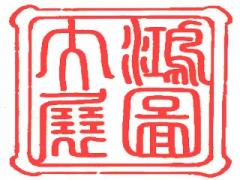
The cross-disciplinary PhD program in East Asian Languages and Civilizations is designed to train graduate students who can teach and conduct independent research in a variety of humanistic disciplines using Chinese, Japanese, Korean, Mongolian, and occasionally other languages of East Asia, defined roughly as China, Japan, Korea, Mongolia, and Inner Asia. Before completion of the degree, each student is required to: 1) master the requisite linguistic tools and research methods; 2) demonstrate a comprehensive knowledge of the history and culture of their area of expertise; 3) gain an in-depth expertise in one or more periods and/or subject areas; and 4) attain the necessary level of training in their humanistic discipline.
While the Department of East Asian Languages and Civilizations (EALC) does not require a minimum level of Chinese, Japanese, Korean, or Mongolian prior to admission, students who do not have sufficient language skills may be required to take remedial language without credit. Successful students generally have at the very least two years or equivalent of at least one East Asian language. Students with questions about language skills should consult a member of the EALC faculty. Applicants must present the results of the Graduate Record Examination (GRE) and demonstrate proficiency in written and spoken English at the graduate level. Students whose native language is not English must take the TOEFL test. Since admission to the PhD program depends on the GRE and/or TOEFL scores, as well as a student’s grade point average and letters of recommendation, the prerequisite tests should be taken well in advance of application. Click here for more details on application requirements.
Prospective students should familiarize themselves with the areas of expertise of the Penn EALC faculty. In most cases, a student whose interests fall outside the strengths and collective expertise of Penn faculty will not be admitted to the program, regardless of qualifications.
Entering students are urged to meet each member of the Graduate Group in EALC. These introductions will make it possible to make an informed selection of courses and become more fully acquainted with the strengths and research of the faculty.
As soon as a student matriculates into the University, an advisor will be appointed. The advisor will serve as the student’s chief mentor. On the rare occasion that a student's academic interests change, the student may change their advisor with permission from the Graduate Chair. Before the beginning of the third year of residency, in consultation with the advisor, a student should select three areas of inquiry that will form three examination fields. The student should then identify three members of the faculty with whom they can take these exams. If an examiner is not a member of the EALC Graduate Group, the student must have the permission of the Graduate Chair and agreement of the examiner in order to continue in that field.
Candidacy examinations will normally be taken within one year after a student has completed all coursework (20 c.u.) and passed the required language examinations. The date of exams should be formally scheduled before the end of the student’s last semester of coursework. “Formally scheduled” means that a letter of intent, stating the proposed fields, examiners, and month of exams, should be sent by the student to the Graduate Chair.
Upon successful completion of the Candidacy examinations, a dissertation committee of at least three persons will be appointed. The chair of the committee will be the student’s advisor. Other members will normally be members of the EALC Graduate Group. This committee may, but need not be, the same as a student’s examination committee. When appropriate, one of the members may be a University faculty member who is not part of the EALC Graduate Group or faculty from another university. A thesis prospectus must be submitted and approved no more than one year after the successful completion of the comprehensive examinations. The optimum time for completion of the PhD from matriculation to defense is five years for students who enter the program without an MA or the equivalent.
Any student who does not progress according to the schedule recommended here must justify why in writing. Otherwise, the student jeopardizes continuation of fellowships or other forms of support. Any student who does not complete the dissertation within six years of the date of passing the qualifying examinations may be asked to re-take one or more qualifying exams in order to verify that they have kept up with current knowledge in the field(s) in which exams were taken.
Students must complete a minimum of twenty (20) graduate c.u., that is, courses numbered 5000 or above, of which twelve (12) must be taken at the University of Pennsylvania. With approval from their advisor and upon completion of eight (8) graduate c.u., up to eight (8) credits may be transferred from an accredited graduate program other than one at Penn.
In addition, there are two non-course requirements:
1) Successful completion of a translation exam in a European language. These are typically French or German, but other languages may be pre-approved based on the field of the candidate.
2) Pedagological training. Students will serve as teaching assistants for 4 semesters during their program. Most often, this occurs in the student's second and third years, but may be delayed due to study abroad or outside fellowship opportunities.
Students should plan their courses of study and examination fields in consultation with their advisors. Every student is expected to meet with their advisor at least once every semester, both when enrolled in courses and afterward. Upon completion of coursework, students will be asked to supply regular progress reports by the Graduate Coordinator. Failure to respond in a timely fashion may be grounds for dismissal.
See the Graduate Catalog for a list of core requirements for the degree.
The Department of East Asian Languages and Civilizations requires students to undergo a first-year review . The three-part review process involves:
1) Submission of a portfolio;
2) An oral interview and reading examination with the First Year Review Committee;
3) Committee’s recommendation for the student to pass into the second year, to pass on probation, or to fail and exit the program.
1. The Portfolio. In the second semester of the first year, a PhD student will submit a portfolio of all written work completed (or near completion) for seminars taken that academic year. The portfolio will include seminar papers for which the student has received a grade as well as drafts of spring semester papers.
2. The Oral Interview . The short oral interview is an opportunity for students to describe in narrative form how they are progressing to their degree and how their research project is developing. Committee members may ask questions about portfolio submissions, the envisioned dissertation topic, incomplete seminar papers, conference presentations, or professional development. Committee members may also use this opportunity to provide verbal feedback on otherwise non-graded or informally assessed aspects of life in the academy (professionalism, scholarly communication, and reliability).
The interview may also include a very short reading examination in a primary research language. In most cases, the reading exam will involve translating or summarizing about one page of an appropriate text that has been selected in consultation with the student’s primary advisor.
In cases where seminar papers included significant work with primary or secondary sources in an Asian language, the reading examination requirement can be waived.
3. Outcomes. The first-year review is primarily designed to confirm that students are on progress to degree, but it is also an opportunity for the department to indicate to students that they may need to make adjustments to maximize their long-term success.
After the review, a student will:
1) Pass and move directly on to the second year and preparation for Candidacy exams
2) Pass, but on probationary status (see below)
3) Fail and exit the program
A student who is placed on probation should take it as an indication that the faculty has serious concerns about their ability to complete the PhD within normative time. The probation period (see below) will provide the student with sufficient opportunity to work with their advisor in addressing the concerns raised by the faculty at the time of the review.
Failure of the first year review and dismissal from the program happen only in the most extreme circumstances. However, the department reserves the right to make this decision in cases where a student’s ability to flourish in the program or in the academy is in serious question.
In cases where student performance has caused serious concern about their fitness for a PhD, the department may choose to place that student on probation. In such a case, the department will be committed to helping through the probation period, but a student may have difficulty addressing departmental concerns. The probation committee will review those concerns at the end of the probation period. In situations where a student is judged not to have addressed academic problems in a satisfactory manner, the student will be terminated from the program.
Students facing medical or personal issues may request a leave of absence. Students are encouraged to familiarize themselves with the Graduate School’s resources for wellness early so that they are aware of the various options available to them.
A student will be asked to exit the program only as a last resort. Students are strongly encouraged to meet regularly with their primary supervisor and the Graduate Chair to ensure that they are on track. A decision of termination is final.
In order to take Candidacy exams, a student must have completed twenty (20) c.u. of coursework, have no “incompletes” on the transcript, have demonstrated the necessary level of preparation in two East Asian languages, and have passed the European or other Asian research language requirement. In addition, a student must have written two seminar papers of high quality. The student’s advisor should notify the Graduate Chair that papers meeting this standard have been completed before the student is allowed to petition to take the examinations.
The Candidacy exams consist of three parts, and the first two must be completed within a two-week period:
1) Three written field exams. Each of these open-book exams is to be completed within one day (24 hours).
2) A research exam given by the student’s primary advisor. The student will have three days (72 hours) to complete the exam using any available sources.
3) An oral exam. The student will meet with all members of the examination committee for a detailed discussion of the student’s answers to the written exam questions (both field exams and the research exam). Most oral exams will last approximately two hours, and should be scheduled within a reasonable timeframe after all written exams are completed.
In the event of failure, the faculty will decide whether the examination may be repeated, in what form, and after what period of time, within the guidelines set forth in the Graduate Catalog . Additional work may be required before the student is allowed to retake the examination.
Only after successful completion of all exams should a student embark on dissertation research. The first step in the preparation of the dissertation is a proposal. This proposal, usually five to seven pages in length, not including bibliography, should include a summary of previous scholarship on the subject, the candidate’s proposed original contribution, outline of the whole projected dissertation, and a preliminary bibliography. Included on the cover sheet should be the names of three people in the field of the dissertation who are capable of serving as readers. The candidate should already have talked to each of them about the dissertation and each should have already agreed to be a reader. It is fine for one or even two readers to be outside the department or the university. However, if this is the case, the student must also have discussed the choice of readers with the main thesis advisor. Samples of accepted proposals are available in the EALC office.
Only after three readers have approved a complete draft will the defense be scheduled. An electronic copy of the draft must then be submitted to the EALC office at least three weeks before the defense so that all Graduate Group members have the opportunity to read the dissertation. The defense must be attended by at least three members of the Graduate Group. All members of the Group are invited.
Upon successful defense of the dissertation, a student is responsible for preparing the dissertation in the required format, carefully proofreading and adhering to University requirements. An index is preferred but not required. Sometimes final changes will have to be made as a result of the defense. The student should assume the dissertation will be available through Pro-Quest.
- Skip to Content
- Catalog Home
- Asian Languages and Cultures, PhD

The Department of Asian Languages and Cultures offers a new interdisciplinary MA and PhD program in Asian Languages and Cultures. Students may take advantage of the many opportunities within the department and on campus to do in-depth research on Asia from multiple disciplinary perspectives and across the traditional area studies divisions of East, South, and Southeast Asia. We welcome applications from students who are interested in working transregionally, transdisciplinarily, or both. This includes students with a traditional background in Asian Studies and related academic fields as well as those whose path to studying Asia has been through professional work.
The Department of Asian Languages and Cultures has developed a lively intellectual community around Transasian Studies and is supporting student-led seminars, reading groups, workshops, and other events. Prospective graduate students are encouraged to reach out to faculty members who share their academic and research interests.
Asian Languages and Cultures is home to nearly twenty faculty whose research and teaching specialties cover a wide range of topics, including traditional medicine in India; the history of yoga; contemporary mindfulness practice with insights from Tibetan Buddhism; human rights in Thailand; Chinese ghost stories, traditional poetics and philology; sociolinguistics and discourse analysis of the Mandarin, Japanese, Korean, Indonesian languages; analysis of classical Japanese tale fiction, early modern comedic narratives, manga, and anime; Japanese counterculture; and Korean cinema and media.
Asian Studies at UW–Madison has strong ties across departments, to research centers, area studies programs, extensive library connections, and alumni relations.
Please consult the table below for key information about this degree program’s admissions requirements. The program may have more detailed admissions requirements, which can be found below the table or on the program’s website.
Graduate admissions is a two-step process between academic programs and the Graduate School. Applicants must meet the minimum requirements of the Graduate School as well as the program(s). Once you have researched the graduate program(s) you are interested in, apply online .
| Requirements | Detail |
|---|---|
| Fall Deadline | January 10 |
| Spring Deadline | This program does not admit in the spring. |
| Summer Deadline | This program does not admit in the summer. |
| GRE (Graduate Record Examinations) | Not Required. |
| English Proficiency Test | Every applicant whose native language is not English, or whose undergraduate instruction was not exclusively in English, must provide an English proficiency test score earned within two years of the anticipated term of enrollment. Refer to the Graduate School: Minimum Requirements for Admission policy: . |
| Other Test(s) (e.g., GMAT, MCAT) | n/a |
| Letters of Recommendation Required | 3 |
Prior to submitting application and materials, applicants should carefully review the faculty’s expertise to determine the fit between their interest and the program. To this extent, prospective applicants may contact a specific faculty to discuss their research interest prior to submitting applications.
Applicants should also review the Graduate School's admission process and Graduate School's minimum requirements .
Applicants must upload an academic writing sample or MA thesis to their application. You may submit a seminar paper, thesis chapter, or journal article. This paper should be in English, and may either be published or unpublished.
For more information on application materials, refer to the application and admissions information page.
In order to be considered for fellowships, project assistantships, and teaching assistantships , all application materials must be in by the fall deadline .
If you do not need any funding support, you may submit applications by April 15.
Graduate School Resources
Resources to help you afford graduate study might include assistantships, fellowships, traineeships, and financial aid. Further funding information is available from the Graduate School. Be sure to check with your program for individual policies and restrictions related to funding.
Graduate Student Costs
For tuition and living costs, please view the Cost of Attendance page . International applicants recommended for admission to the Graduate School are required to show sufficient funds to attend the University during the course of studies (tuition, food and housing, incidentals and health insurance) to be officially accepted by the Graduate School.
Department Resources
The Department of Asian Languages and Cultures offers financial assistance in the forms of fellowships, teaching assistantships (TAships), and project assistantships (PAships). Please make note of the deadline of January 10 for financial assistance consideration . All necessary materials including test scores must be submitted by the deadline.
If you are an international applicant and receive a fellowship, PAship or TAship, please make note that you will likely be required to show additional financial documentation to meet the minimum required for your official acceptance to the Graduate School.
Other Awards & Fellowships
- F o r e i g n Language & Area Studies (FLAS) Fellowships: FLAS fellowships are funded by the U.S. Department of Education and administered by the UW's National Resource Centers to assist students in acquiring foreign language and either area or international studies competencies. FLAS awards are only available for specific languages and are contingent on federal funding.
Applicants must be U.S. citizens or permanent residents of the United States. Applications by students in professional fields are encouraged. Preference will be given to applicants with a high level of academic ability and with previous language training.
Academic Year and Summer FLAS awards are two separate competitions requiring two separate and complete applications.
Complete details about FLAS at UW-Madison are available on the FLAS FAQs (your first stop) and the FLAS Languages & Coordinators pages (should you have additional questions).
- Adv a n ce d Opportunity Fellowship (AOF): This fellowship is awarded to highly qualified underrepresented students. To be considered for AOF funding, prospective students must be new to the Graduate School and be admissible to a graduate program at the University of Wisconsin-Madison. For further information: https://grad.wisc.edu/diversity/ .
- Project Assistantships. Availability of PAship varies from one year to another, depending on the types of projects the departmental faculty are engaged in. PAs assist faculty members’ research projects and/or respond to some programmatic needs of the department and other campus units.
- T e a c hin g Assistantships. Availability and types of TAship vary from one year to another, depending on the department’s curricular needs and student enrollment. TAs will support a number of our language and culture courses, typically team-teaching with faculty members. If you are interested in being a teaching assistant in our language programs, you must submit the TA application and necessary materials (1-2 page written autobiography that refers to your prior teaching experience, letter of recommendation that speaks to your teaching experience, video recording of your teaching, if available) through the Graduate School application system by January 10 .
- Institute for Regional and International Studies (IRIS) Awards Office: IRIS manages its own funding opportunities (Scott Kloeck-Jenson Fellowships, IRIS Graduate Fieldwork Awards, Incubator Grants), coordinates the campus component of a number of external programs (Boren Fellowships, Fulbright US Student Program, Fulbright-Hays DDRA, Luce Scholars Program), assists students, faculty, and staff in exploring funding options, and much more. Visit: https://iris.wisc.edu/funding/ for more information on awards. Contact Mark Lilleleht, Assistant Director for Awards, with questions at [email protected] & 608-265-6070.
- Other Forms of Financial Aid: Loans and some on-campus job openings are handled through the Office of Student Financial Aid . Please contact them to obtain more information.
- Students may also obtain information from the Grants Information Center in the Memorial Library, Room 262, 728 State St., Madison, WI 53706. Phone 608-262-3242.
Minimum Graduate School Requirements
Major requirements.
Review the Graduate School minimum academic progress and degree requirements , in addition to the program requirements listed below.
Mode of Instruction
| Face to Face | Evening/Weekend | Online | Hybrid | Accelerated |
|---|---|---|---|---|
| Yes | No | No | No | No |
Mode of Instruction Definitions
Accelerated: Accelerated programs are offered at a fast pace that condenses the time to completion. Students typically take enough credits aimed at completing the program in a year or two.
Evening/Weekend: Courses meet on the UW–Madison campus only in evenings and/or on weekends to accommodate typical business schedules. Students have the advantages of face-to-face courses with the flexibility to keep work and other life commitments.
Face-to-Face: Courses typically meet during weekdays on the UW-Madison Campus.
Hybrid: These programs combine face-to-face and online learning formats. Contact the program for more specific information.
Online: These programs are offered 100% online. Some programs may require an on-campus orientation or residency experience, but the courses will be facilitated in an online format.
Curricular Requirements
| Requirements | Detail |
|---|---|
| Minimum Credit Requirement | 51 credits |
| Minimum Residence Credit Requirement | 32 credits |
| Minimum Graduate Coursework Requirement | 51 credits must be graduate-level coursework. Refer to the Graduate School: Minimum Graduate Coursework (50%) Requirement policy: . |
| Overall Graduate GPA Requirement | 3.00 GPA required. Refer to the Graduate School: Grade Point Average (GPA) Requirement policy: . |
| Other Grade Requirements | Students must earn a B or above in all coursework (numbered 300 or above, not including research credits) taken as a graduate student. |
| Assessments and Examinations | The preliminary exam must be taken within 1 semester after completing doctoral coursework. Comprehensive written preliminary exams will be based on reading lists developed with the committee. These exams have four parts: general competence in major field; secondary field; theory and method; and specialized area of dissertation focus. The preliminary examination will be evaluated by a committee of at least three members (the co-advisors and an additional faculty member). Successful completion of the exam process will also require research language competence as demonstrated through examinations in one or more languages as determined by the advisors. A dissertation proposal must be approved within 1 year after completing prelim exams. An oral defense of the proposal will be evaluated by the committee. |
| Language Requirements | Additional language coursework beyond the MA requirements is not required in general, but students must gain sufficient competence to pass the research language exams required by the advisors. |
| Graduate School Breadth Requirement | A doctoral minor or graduate/professional certificate is not a requirement, but a student, in consultation with their advisors, may choose to complete either. |
Required Courses
| Code | Title | Credits |
|---|---|---|
| Asia and Related Graduate Coursework | 36 | |
| In consultation with advisor, students must complete at least 36 credits in Asia-related graduate courses in the department or elsewhere in campus. | ||
| Additional Coursework | 15 | |
| In consultation with advisor, students must complete at least 15 credits of additional coursework to meet the 51-credit minimum requirement. | ||
| Language Coursework | ||
| Students may complete coursework in language study at the third-year level and beyond. A maximum of 6 credits may fulfill the minimum credit requirement. Language coursework is not required, but students must gain sufficient competence to pass the research language exams required by advisors. | ||
| Total Credits | 51 | |
Students may take courses and seminars drawn from offerings in other departments or within Asian Languages and Cultures, as decided in collaboration between student and the co-advisors, such as:
| Code | Title | Credits |
|---|---|---|
| Topics in Asian Studies | 3 | |
| Social Studies Topics in East Asian Studies | 3 | |
| Hinduism | 3 | |
| A Survey of Tibetan Buddhism | 3 | |
| Introduction to Buddhism | 3-4 | |
| Modern Indian Literatures | 3 | |
| The Vietnam Wars | 3-4 | |
| The Koreas: Korean War to the 21st Century | 3-4 | |
| Social and Intellectual History of China, 589 AD-1919 | 3-4 | |
| History of Modern China, 1800-1949 | 3-4 | |
| History of the Peoples Republic of China, 1949 to the Present | 3-4 | |
| Survey of Classical Chinese Literature | 3 | |
| Survey of Modern Chinese Literature | 3 | |
| Lovers, Warriors and Monks: Survey of Japanese Literature | 3 | |
| Early Modern Japanese Literature | 3 | |
| Modern Japanese Literature | 3 | |
| Language in Japanese Society | 3 | |
| Love and Politics: The Tale of Genji | 3 | |
| China and World War II in Asia | 3-4 | |
| Haiku | 3 | |
| Islam: Religion and Culture | 3-4 | |
| Topics in Chinese Literature | 3 | |
| Survey of Chinese Film | 3 | |
| Manga | 3 | |
| Anime | 3 | |
| Cities of Asia | 3 | |
| Southeast Asian Literature | 3 | |
| Visual Cultures of India | 3 | |
| Indian Traditions in the Modern Age | 3 | |
| Introduction to Chinese Linguistics | 3 | |
| Topics in East Asian Visual Cultures | 3 | |
| Introduction to Japanese Linguistics | 3 | |
| Introduction to Sufism (Islamic Mysticism) | 3 | |
| Samurai: History and Image | 3-4 | |
| Pearl Harbor & Hiroshima: Japan, the US & The Crisis in Asia | 3-4 | |
| History of Southeast Asia Since 1800 | 3-4 | |
| The History of Yoga | 3 | |
| Topics in South Asian History | 3 | |
| Buddhist Thought | 3 | |
| Meditation in Indian Buddhism and Hinduism | 3 | |
| Indian Writers Abroad: Literature, Diaspora and Globalization | 3 | |
| The Perfectible Body in Religions, Medicines, and Politics | 3 | |
| Readings in Early Modern Japanese Literature | 3 | |
| Readings in Modern Japanese Literature | 3 | |
| Readings in Classical Chinese Literature | 1-3 | |
| Readings in Classical Japanese Literature | 3 | |
| Capstone Seminar in Asian Humanities | 3 | |
| Mapping, Making, and Representing Colonial Spaces | 3 | |
| History of Chinese Literature II | 3 | |
| Ethnography in Asia | 3 | |
| Proseminar: Studies in Cultures of Asia | 3 | |
| History of the Chinese Language | 3 | |
| Studies in Chinese Linguistics | 3 | |
| History of Chinese Literature I | 3 | |
| Proseminar in Buddhist Thought | 2-3 | |
| Studies in Chinese Fiction | 3 | |
| Directed Study | 2-3 | |
| Directed Study | 2-3 | |
| Teaching Asian Languages | 2-3 | |
| Proseminar in Chinese Literature | 3 | |
| Teaching of Chinese | 3 | |
| Teaching of Japanese as a Foreign Language | 3 | |
| Studies in Chinese Syntax and Morphology | 3 | |
| Studies in Chinese Historical Texts | 3 | |
| Studies in Chinese Philosophical Texts | 3 | |
| Studies in Japanese Literature | 3 | |
| Japanese Applied Linguistics | 3 | |
| Reading for Research | 1-3 | |
| Seminar: Interdisciplinary Approaches to Asia | 3 | |
| Topics in East Asian Visual Cultures | 3 | |
| Seminar-History of India (South Asia) | 1-3 | |
| Seminar in Languages and Literatures of Asia | 3 | |
| Seminar in Chinese Linguistics | 2-3 | |
| Seminar in Chinese Literature | 3 | |
| Thesis Research | 3 | |
| Independent Research | 1-3 |
Program Pathway
Initially working with two co-advisors, each student will craft a program of coursework that combines Asia-focused courses with disciplinary study in and beyond the Department of Asian Languages and Cultures. This may include linkages with other departments as well as UW-Madison’s rich array of centers and programs, including the Center for Healthy Minds , Center for Visual Cultures , Human Rights Program , Religious Studies Program , and the Center for East Asian Studies , the Center for South Asia , and the Center for Southeast Asian Studies .
Graduate School Policies
The Graduate School’s Academic Policies and Procedures provide essential information regarding general university policies. Program authority to set degree policies beyond the minimum required by the Graduate School lies with the degree program faculty. Policies set by the academic degree program can be found below.
Major-Specific Policies
Prior coursework, graduate credits earned at other institutions.
With program approval, students are allowed to transfer no more than 9 credits of graduate coursework from other institutions. Coursework earned ten years or more prior to admission to a doctoral degree is not allowed to satisfy requirements.
Undergraduate Credits Earned at Other Institutions or UW-Madison
With program approval, no more than 7 credits of graduate coursework completed while a UW–Madison undergraduate may transfer to satisfy degree requirements. Coursework earned ten years or more prior to admission to a doctoral degree is not allowed to satisfy requirements.
Credits Earned as a Professional Student at UW-Madison (Law, Medicine, Pharmacy, and Veterinary careers)
Refer to the Graduate School: Transfer Credits for Prior Coursework policy.
Credits Earned as a University Special student at UW–Madison
With program approval, students are allowed to transfer no more than 9 credits of graduate coursework taken as a UW–Madison Special student. Coursework earned ten years or more prior to admission to a doctoral degree is not allowed to satisfy requirements.
Refer to the Graduate School: Probation policy.
Advisor / Committee
Starting fall 2018, all students are required to be supervised by co-advisors. One of the co-advisors must be a member of the Asian Languages and Cultures program, but the other co-advisor can be identified from related fields outside of the department at UW-Madison.
At the point of beginning work on the dissertation, a single dissertation advisor (most likely one of the co-advisors) may be chosen, or the co-advising arrangement may continue for the dissertation as well.
Dissertation committees must have at least four members representing more than one graduate program, three of whom must be UW–Madison graduate faculty or former UW–Madison graduate faculty up to one year after resignation or retirement. At least one of the four members must be from outside of the student’s major program or major field (often from the minor field).
Credits Per Term Allowed
Time limits.
Refer to the Graduate School: Time Limits policy.
Grievances and Appeals
These resources may be helpful in addressing your concerns:
- Bias or Hate Reporting
- Graduate Assistantship Policies and Procedures
- Office of the Provost for Faculty and Staff Affairs
- Employee Assistance (for personal counseling and workplace consultation around communication and conflict involving graduate assistants and other employees, post-doctoral students, faculty and staff)
- Employee Disability Resource Office (for qualified employees or applicants with disabilities to have equal employment opportunities)
- Graduate School (for informal advice at any level of review and for official appeals of program/departmental or school/college grievance decisions)
- Office of Compliance (for class harassment and discrimination, including sexual harassment and sexual violence)
- Office Student Assistance and Support (OSAS) (for all students to seek grievance assistance and support)
- Office of Student Conduct and Community Standards (for conflicts involving students)
- Ombuds Office for Faculty and Staff (for employed graduate students and post-docs, as well as faculty and staff)
- Title IX (for concerns about discrimination)
Students should contact the department chair or program director with questions about grievances. They may also contact the L&S Academic Divisional Associate Deans, the L&S Associate Dean for Teaching and Learning Administration, or the L&S Director of Human Resources.
- Professional Development
Take advantage of the Graduate School's professional development resources to build skills, thrive academically, and launch your career.

Program Resources
Throughout the academic year, professional development trainings, workshops, and graduate student-organized activities take place. The Director of Graduate Studies is eager to hear from students about what interests they have for such events.
Graduate School Office of Professional Development
The Graduate School Office of Professional Development (OPD) coordinates, develops, and promotes learning opportunities to foster the academic, professional, and life skills of graduate students and postdoctoral researchers and scholars.
Professional development topics include Individual Development Plans , communication, mentoring, grant writing, dissertation writing, career exploration, job search strategies, and more. OPD collaborates with the Writing Center, Libraries, DoIT Software Training for Students, Delta, career centers, and others to provide a wealth of resources and events tailored to the needs of UW–Madison graduate students.
The office developed and maintains DiscoverPD , an innovative tool for UW–Madison graduate students to advance their academic and professional goals. DiscoverPD introduces nine areas (or "facets") of professional development, includes a self-assessment, and provides a customized report of areas of strength and weakness. The report comes with recommendations to help graduate students strengthen their ability within each area.
More information on campus resources for student professional development is available at Graduate Student Professional Development . Students may keep up-to-date by reading GradConnections , the weekly newsletter for graduate students, and bookmarking the Events Calendar to keep tabs on upcoming workshops of interest.
- Learning Outcomes
- Demonstrate a thorough and in-depth understanding of research problems, potentials, and limits with respect to theory, knowledge, or practice in the selected area of the student's focus.
- Formulate ideas, concepts, designs, and/or techniques beyond the current boundaries of knowledge within the specialized field(s).
- Create scholarship and advance knowledge that makes a substantive contribution to the field(s).
- Articulate and communicate complex ideas in a clear and understandable manner to both specialized and general audiences.
- Recognize, apply, and foster ethical and professional conduct.
Please visit the Asian Languages & Cultures website for a complete list of faculty, instructional, and academic staff.
- Requirements
Contact Information
Asian Languages & Cultures, Graduate Program https://alc.wisc.edu/graduate-programs/
Tiange Wang, Graduate Program Coordinator [email protected]
Tyrell Haberkorn, Director of Graduate Studies [email protected]
Graduate School grad.wisc.edu
- /api/
- /pdf/
- Explore Graduate Opportunities
- Explore UW-Madison's Undergraduate Opportunities
- Accounting and Information Systems
- African American Studies
- African Cultural Studies
- Agricultural and Applied Economics
- Agricultural and Life Sciences - College-Wide
- Animal and Dairy Sciences
- Anthropology
- Art History
- Asian Languages and Cultures, Doctoral Minor
- Asian Languages and Cultures, MA
- Chinese, Doctoral Minor
- Chinese, MA
- Chinese, PhD
- Japanese, Doctoral Minor
- Japanese, MA
- Japanese, PhD
- Atmospheric and Oceanic Sciences
- Bacteriology
- Biochemistry
- Biological Systems Engineering
- Biomedical Engineering
- Biostatistics and Medical Informatics
- Business - School-Wide
- Cell and Regenerative Biology
- Chemical and Biological Engineering
- Chicana/o and Latina/o Studies
- Civil and Environmental Engineering
- Civil Society & Community Studies
- Classical and Ancient Near Eastern Studies
- Communication Arts
- Communication Sciences and Disorders
- Community and Environmental Sociology
- Computer Sciences
- Counseling Psychology
- Curriculum and Instruction
- Educational Leadership and Policy Analysis
- Educational Policy Studies
- Educational Psychology
- Electrical and Computer Engineering
- Engineering - College-Wide
- Food Science
- Forest and Wildlife Ecology
- French and Italian
- Gaylord Nelson Institute for Environmental Studies
- Gender and Women's Studies
- German, Nordic, and Slavic
- Graduate - School-Wide
- Human Ecology - School-Wide
- Industrial and Systems Engineering
- Information School
- Institute for Clinical and Translational Research
- Institute for Regional and International Studies
- Integrative Biology
- Journalism and Mass Communication
- Kinesiology
- La Follette School of Public Affairs
- Language Institute
- Language Sciences
- Law - School-Wide
- Life Sciences Communication
- Management and Human Resources
- Materials Science and Engineering
- Mathematics
- Mead Witter School of Music
- Mechanical Engineering
- Medical Physics
- Medicine and Public Health - School-Wide
- Nuclear Engineering and Engineering Physics
- Nursing - School-Wide
- Nutritional Sciences
- Operations and Information Management
- Pharmacy - School-Wide
- Planning and Landscape Architecture
- Plant and Agroecosystem Sciences
- Plant Pathology
- Political Science
- Population Health Sciences
- Real Estate and Urban Land Economics
- Rehabilitation Psychology and Special Education
- Religious Studies
- Risk and Insurance
- Sandra Rosenbaum School of Social Work
- Soil and Environmental Sciences
- Soil Science
- Spanish and Portuguese
- Veterinary Medicine - School-Wide
- Nondegree/Visiting Student Guide
- Pharmacy Guide
- School of Medicine and Public Health Guide
- Undergraduate Guide
- Veterinary Guide

45,000+ students realised their study abroad dream with us. Take the first step today
Meet top uk universities from the comfort of your home, here’s your new year gift, one app for all your, study abroad needs, start your journey, track your progress, grow with the community and so much more.

Verification Code
An OTP has been sent to your registered mobile no. Please verify

Thanks for your comment !
Our team will review it before it's shown to our readers.

- Study Abroad /
PhD in South Korea For International Students: Scholarship, Stipend, and More

- Updated on
- Dec 15, 2023
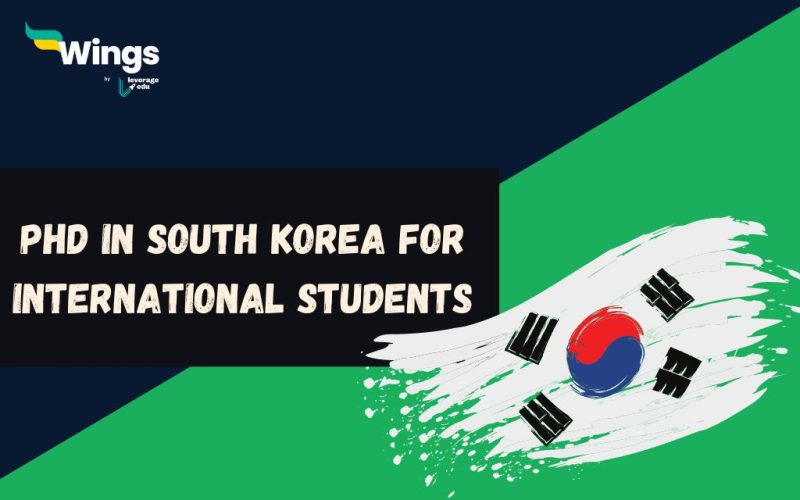
Usually, South Korea is known for its technological advancement and influential cinema (K-dramas and K-pop). But the country is also fast becoming a popular hub for international students for higher education. Its world-class universities and thriving research landscape make it an ideal destination for a PhD. This blog will tell you all about pursuing a PhD in South Korea. We will cover all aspects, such as top universities, programs, tuition fees and other expenses, scholarships, and work opportunities. Read on to discover more!
| PhD | |
| 3-4 years (can vary for each university) | |
| Fields like engineering, technology, natural sciences, humanities, and social sciences | |
| 207,125 (as of June 2023) | |
| KWR 64,82,525/year KWR 12,965,050 – 25,930,100/year | |
| Master’s degree, strong academic record, research proposal, recommendation letters, language proficiency (Korean recommended, English sometimes accepted) | |
| ~ KWR 10,37,204 – 15,55,806/month; ~KWR 7,77,903 – 10,37,204/month. | |
| Government scholarships and University scholarships (Merit-based, research assistantships, teaching assistantships) | |
| KWR 12,96,505 – 25,93,010/month. | |
| High demand for PhD graduates in academia, research institutions, and leading Korean companies |
This Blog Includes:
Why pursue phd in south korea, top universities for phd in south korea, top disciplines for phd in south korea, tuition fees and funding, cost of living in south korea, scholarships, when to apply for a phd in south korea, student visa.
Also Read: Study in South Korea for Indian Students
We can list several reasons for international students to enrol in PhD in South Korea. The country is home to institutes ranked in the 100 top universities of the world and is known worldwide for its technological innovation. But you can also find a blend of this innovation with ancient heritage in cities like Busan, Seoul, and Incheon. In addition to this, the Korean Government also provides many scholarships and funding programs for international students to cover their academic and other expenses.
Numerous public and private universities offer PhD in South Korea. These universities are among the top 100 institutes globally known for their courses in Engineering and Technology. So here’s a list of the top 5 universities in the country to pursue a doctorate in the field of your choice:
| Public | 41 | |
| Korea Advanced Institute of Science and Technology (KAIST) | Public | 56 |
| Private | =100 | |
| Private | =76 | |
| Private | 79 |
Also Read: Top Universities in South Korea 2024
Given below is a list of some of the popular fields in which South Korean universities offer doctorates to international students:
- Chemistry, General
- Clinical Psychology
- Education, General
- Educational Leadership and Administration, General
- Electrical, Electronics and Communications Engineering
- Physics, General
- Physical Therapy
- Psychology, General
PhD Program Structure:
The academic year for PhD in South Korea lasts from March to February. It is split into 2 semesters, the first from March to June and the second from September to November. Here’s a general overview of what pursuing a PhD in South Korea looks like:
- You will be required to complete research training and taught courses to the value of 36 credits (or approximately equivalent to 72 ECTS Credits), depending on your Masters’ qualification.
- You will then have to clear a written/comprehensive examination.
- Ultimately, you will complete a thesis with one or more supervisors for guidance.
- After submitting your thesis, a panel of 5 supervisors will evaluate it. You may not need to prepare an oral defence of your thesis if it gets approved by the supervisory panel.
Note: To get a more specific PhD program structure, contact the respective university you wish to apply to.
The tuition fee for PhD in South Korea is the same for international and domestic students, costing around KWR 2,056,932 – 16,229,862/semester . The Engineering and Medicine courses are more expensive compared to the Humanities discipline. Here are some other academic costs that aspiring researchers can expect in South Korea:
| KWR 26,540 – 265,410 | |
| KWR 1,061,650 (for 3-week intensive course) KWR 1,857,890 (for a 10-week program) | |
| KWR 26,540/month |
Here are some living costs that international students can expect while doing their PhD in South Korea:
| Accommodation | $40-USD 60/month (monthly pass) |
| Food & Groceries | $100-USD 200/month (electricity, water, internet) |
| Transportation | $300-USD 500/month |
| Utilities | $30-USD 50/month |
| Mobile phone | $10-USD 15, $5-USD 10. Costs can vary depending on activities and hobbies. |
| Dining out | $20-USD 50 Public healthcare is relatively affordable, but private insurance might be desirable. |
| Entertainment | USD 6 10 (casual lunch), $15-USD 25 (mid-range dinner) |
| Healthcare | $20-$50 USD Public healthcare is relatively affordable, but private insurance might be desirable. |
| Personal expenses | Depends on your individual needs and preferences. |
Also Read: Cost of Living in Seoul
While tuition fees for a PhD in South Korea can cost quite a bit, there are also several scholarships available for international students. These scholarships come in the form of partial or full fee waivers, covering 30%-100% of the tuition costs. Some of these merit-based schemes are as follows:
- Global Korea Scholarship – Covers medical insurance, tuition fees, flights, living costs, and language lessons.
- Support Program for Self-Financed Students – KWR 500,000 worth of living expenses per month to self-financed students in Korea.
South Korean universities generally have two intakes around the year: Spring and Autumn. Students going for courses starting in March should apply between September and November. Those seeking admission in courses starting in September must apply between May and June. Students can apply directly to the university of their choice.
Admission Requirements
To enroll for a Ph.D. in South Korea, students need to have a master’s degree (or equivalent) in a relevant field. Some universities also accept an undergraduate degree from a recognized university. Here are some other requirements that aspiring researchers need to fulfill:
- Filled application form
- A personal statement
- A letter of recommendation from your previous alma mater.
- Academic transcripts
- Nationality proof of the applicant (copy of passport)
- Language proficiency in English and/or Korean (TOPIK Level 3 or above)
- Proof of financial means
- Portfolio with certification in practical courses
- A bank balance of USD 10,000
To get a student visa to South Korea, students will need to apply for the same at the Korean embassy in their home country. International students must apply for D-2 visa (Visa for Regular Educational Program) for PhD in South Korea using the following documents:
- Completed visa application form
- Valid passport
- Passport-size photographs
- Offer letter from the university applied to.
- Academic transcripts (certified copies)
- Proof of financial means (at least USD 10,000)
Also Read: South Korean Student Visa for Indians: Process, Requirements & Duration
Relevant Reads:
Ans: Universities often offer Korean language courses for international students, and some scholarships even require basic proficiency. So, while it’s not essential to be fluent, starting or improving your Korean before or during your PhD will be highly advantageous for several reasons: 1. Enhanced research opportunities 2. Deeper cultural immersion 3. Improved career prospects
Ans: Your income as a PhD student in South Korea will depend on your scholarship/funding, university, research assistantships, and teaching opportunities. Prestigious government scholarships like the Global Korea Scholarship can cover full tuition and provide a monthly stipend of around $1,000-2,000 USD. Then there are universities offering merit-based scholarships, and research or teaching assistantships, which can add to your income.
Ans: While studying in South Korea offers exceptional opportunities, there are also potential challenges to consider: 1. Cultural adjustment 2. Language barrier 3. Academic pressure 4. Social isolation But with good preparation, cultural sensitivity, and a supportive network, you can overcome any obstacles and thrive in your academic journey.
We hope you got a complete overview of pursuing a PhD in South Korea from this blog. For more courses to study abroad , subscribe to Leverage Edu today. Thank you for reading!
Disha Kaira
Disha is an electrical engineer turned writer passionate about bringing a spark (and accuracy) to whatever content she comes across. Whether it's UI/UX Design or writing blogs on abroad education, she relishes every chance to learn and test the limits of her creativity.
Leave a Reply Cancel reply
Save my name, email, and website in this browser for the next time I comment.
Contact no. *

Connect With Us
45,000+ students realised their study abroad dream with us. take the first step today..

Resend OTP in

Need help with?
Study abroad.
UK, Canada, US & More
IELTS, GRE, GMAT & More
Scholarship, Loans & Forex
Country Preference
New Zealand
Which English test are you planning to take?
Which academic test are you planning to take.
Not Sure yet
When are you planning to take the exam?
Already booked my exam slot
Within 2 Months
Want to learn about the test
Which Degree do you wish to pursue?
When do you want to start studying abroad.
January 2024
September 2024
What is your budget to study abroad?

How would you describe this article ?
Please rate this article
We would like to hear more.
Have something on your mind?

Make your study abroad dream a reality in January 2022 with
India's Biggest Virtual University Fair

Essex Direct Admission Day
Why attend .

Don't Miss Out
| '; audChoice = audChoice.replace(/ selected=["']selected["']/gm, '');var audT = document.getElementById('audT');if ((audT) && (audPref)) { //Parse the content if(audPref.indexOf(':') > -1) { var audPrefAccent = audPref.split(':')[0]; var playbackRate = audPref.split(':')[1]; } else { var audPrefAccent = audPref; var playbackRate = 1; } var re = new RegExp('( UK and possibly other pronunciationsUK and possibly other pronunciations/ˌpiːeɪtʃˈdiː/ | | | | | | | WordReference English-Korean Dictionary © 2024:
제목에서 "PhD"단어에 관한 포럼 토론:
다른 언어로: 스페인어 | 불어 | 이탈리아어 | 포르투갈어 | 루마니아어 | 독일어 | 네덜란드어 | 스웨덴어 | 러시아어 | 폴란드어 | 체코어 | 그리스어 | 터키어 | 중국어 | 일본어 | 아랍어

PhD in South Korea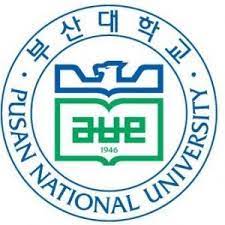 Pusan National UniversityPhd ( business administration ). 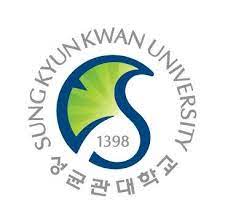 Sungkyunkwan University( SKKU)Phd ( political science ). 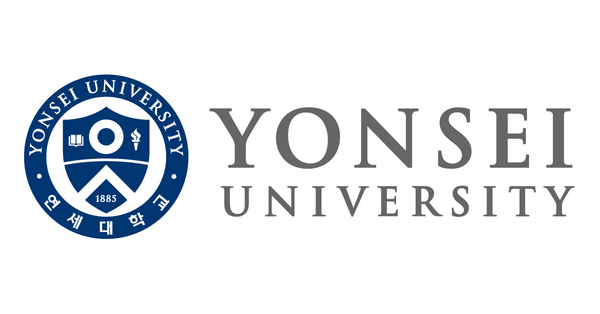 Yonsei UniversityPhd ( korean studies ). 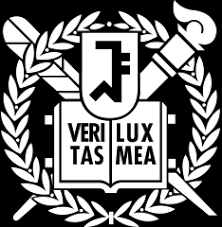 Chonnam National UniversityPhd ( polymer engineering ).  Hanyang UniversityPhd ( political science and international studies ). 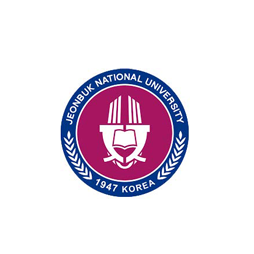 Jeonbuk National UniversityPhd ( aerospace engineering ). 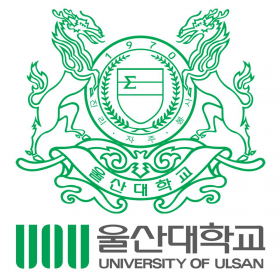 University of UlsanPhd ( chemical engineering ). 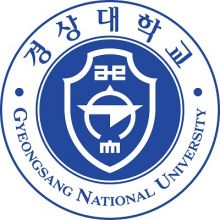 Gyeongsang National UniversityPhd ( management information systems ). 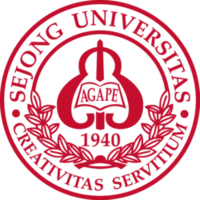 Sejong UniversityPhd ( semiconductor systems engineering ). .png) Kwangwoon UniversityPhd ( electronics engineering ). 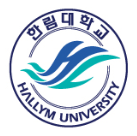 Hallym UniversityPhd ( social welfare ). 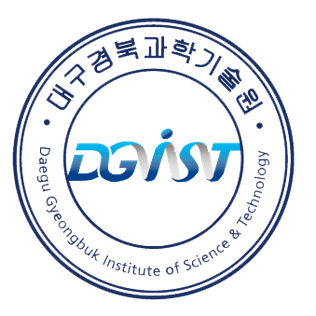 Daegu Gyeongbuk Institute of Science & Technology (DGIST)Phd ( electrical engineering ). 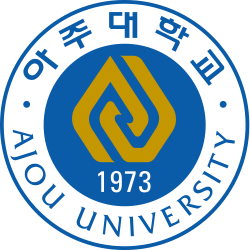 AJOU UNIVERSITYPhd ( mechanical engineering ). 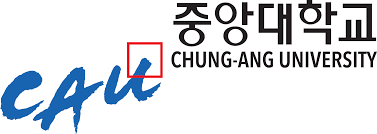 CHUNG-ANG UNIVERSITY (ANSUNG Campus)Phd ( global innovative drugs ). 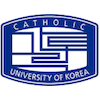 Catholic University of KoreaPhd ( artificial intelligence ). 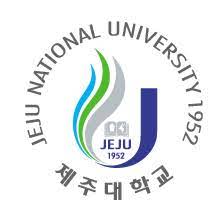 Jeju National University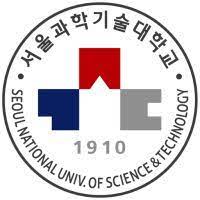 Seoul National University of Science and TechnologyPhd ( information technology ). 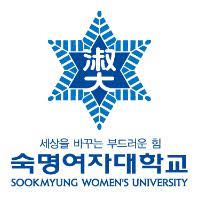 Sookmyung Women's UniversityPhd ( biological sciences ).  Dongguk University(seoul)Phd ( mathematics ). 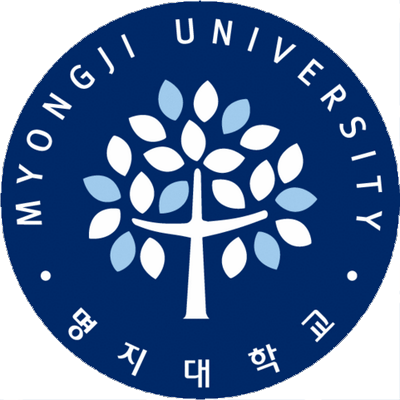 Myongji University (Social Science Campus)
Why Study PhD (Doctor of Philosophy) in South Korea1. Academic Excellence: South Korea is known for its excellent education system and high academic standards. The country has made significant investments in research and development, leading to world-class universities and research institutions. Pursuing a PhD in South Korea allows you to work with top-notch faculty members who are experts in their fields. 2. Research Opportunities: South Korea places great emphasis on research and innovation. The country is known for its advancements in various scientific and technological fields, including electronics, telecommunications, biotechnology, and robotics. By pursuing a PhD in South Korea, you can engage in cutting-edge research projects and work with state-of-the-art facilities and equipment. 3. Scholarship Programs: South Korea offers numerous scholarship programs specifically designed for international students, including those pursuing PhD degrees. These scholarships often cover tuition fees, living expenses, and even provide additional allowances for research-related activities. Scholarships such as the Korean Government Scholarship Program (KGSP) and individual university scholarships can help alleviate the financial burden of pursuing a PhD. 4. Global Recognition: Universities in South Korea have gained international recognition for their research and academic contributions. Earning a PhD from a reputable South Korean institution can enhance your career prospects globally, as it demonstrates your ability to conduct independent research and contribute to your field of study. 5. Cultural Experience: Studying in South Korea offers a unique cultural experience. The country has a rich history, vibrant culture, and a blend of modern and traditional elements. Immersing yourself in Korean society can broaden your horizons, foster cross-cultural understanding, and provide opportunities for personal growth. 6. Networking and Collaboration: South Korea has a strong academic network and collaborations with universities and research institutions worldwide. By studying for a PhD in South Korea, you can establish connections with fellow researchers, professors, and industry professionals not only within South Korea but also internationally. These networking opportunities can open doors for future collaborations and career opportunities. 7. Career Opportunities: South Korea has a robust economy with leading multinational corporations and a thriving start-up ecosystem. Completing a PhD in South Korea can provide you with a competitive edge in the job market, as employers often value the skills, expertise, and research experience gained during a doctoral program. PhD (Doctor of Philosophy) specialization in South Korea
Admission Intake for PhD (Doctor of Philosophy) in South Korea1. Spring Intake: The Spring intake usually begins in March. The application period for Spring intake typically starts several months before, around September or October of the previous year. The exact application deadlines can vary among universities, so it's important to check the specific university's website for the precise dates. 2. Fall Intake: The Fall intake usually starts in September. The application period for Fall intake typically begins several months prior, around February or March of the same year. Again, it's important to check the university's website for the exact application deadlines. Top 10 Universities in South Korea for PhD (Doctor of Philosophy)
Tuition Fees for PhD (Doctor of Philosophy) in South Korea1. Public Universities: The tuition fees for PhD programs in public universities in South Korea are generally lower compared to private universities. On average, international students can expect to pay between KRW 3,000,000 to KRW 10,000,000 per year for tuition fees. 2. Private Universities: Tuition fees for PhD programs in private universities tend to be higher compared to public universities. The average range for international students can be between KRW 5,000,000 to KRW 15,000,000 per year. 3. Scholarships and Funding: It's worth noting that many universities in South Korea offer scholarships and funding opportunities to both domestic and international students. These scholarships can help cover tuition fees and provide additional financial support for living expenses. It's recommended to explore the scholarship options available at the specific university or through external funding programs. Cost of Studying PhD (Doctor of Philosophy) in South Korea
Eligibility for doing PhD (Doctor of Philosophy) in South Korea1. Educational Qualifications: You should hold a relevant master's degree or equivalent qualification from an accredited university. In some cases, exceptional candidates with a bachelor's degree and strong academic background may also be considered for direct admission to a PhD program. 2. Research Proposal: You are usually required to submit a research proposal outlining your proposed area of study, research objectives, methodology, and potential contributions to the field. This helps demonstrate your research potential and align your interests with the university's faculty and research expertise. 3. Language Proficiency: Proficiency in the English language is essential for most international PhD programs in South Korea. You may be required to provide proof of English language proficiency through standardized tests such as TOEFL or IELTS. Some universities may have specific minimum score requirements, so it's important to check the specific university's admission guidelines. 4. Academic Transcripts: You will need to submit official academic transcripts from your previous educational institutions, including both undergraduate and postgraduate degrees. These transcripts should demonstrate strong academic performance and relevant coursework in your field of study. 5. Letters of Recommendation: Most PhD programs require letters of recommendation from academic professionals who can attest to your qualifications, research abilities, and potential for success in a doctoral program. 6. Entrance Exams or Interviews: Some universities may require applicants to take entrance exams or participate in interviews as part of the selection process. These exams or interviews may assess your subject knowledge, research aptitude, and suitability for the program. Documents Required for PhD (Doctor of Philosophy) in South Korea1. Application Form: Complete the official application form provided by the university or department. This form usually requires personal information, educational background, research interests, and other relevant details. 2. Statement of Purpose: Write a statement of purpose outlining your academic and research background, research interests, career goals, and reasons for pursuing a PhD in South Korea. This document allows you to demonstrate your motivation, fit with the program, and research potential. 3. Curriculum Vitae (CV): Prepare a comprehensive CV that includes your educational qualifications, research experience, publications (if any), academic achievements, work experience, and any relevant extracurricular activities or involvement in research projects. 4. Academic Transcripts: Provide official copies of your academic transcripts from all previous institutions you have attended. These transcripts should list the courses you have completed, grades obtained, and the degree(s) earned. 5. Letters of Recommendation: Obtain two to three letters of recommendation from academic professionals who can evaluate your academic abilities, research potential, and suitability for a PhD program. These letters should be written on official letterhead and sealed. 6. Research Proposal: Prepare a detailed research proposal outlining your proposed research topic, objectives, methodology, and potential contributions to the field. This document helps assess your research abilities and alignment with the university's research strengths. 7. English Language Proficiency: If English is not your native language, you may be required to provide proof of English language proficiency through standardized tests such as TOEFL or IELTS. Some universities may have specific minimum score requirements. 8. Passport Copy: Provide a clear copy of your passport's identification page to verify your identity and nationality. 9. Application Fee: Some universities may require payment of an application fee. The amount and payment method will be specified by the university. 10. Other Supporting Documents: Depending on the university and program, you may be asked to submit additional documents such as a research plan, portfolio, or sample of academic writing. Scholarships for PhD (Doctor of Philosophy) in South Korea1. Korean Government Scholarship Program (KGSP): The KGSP provides fully-funded scholarships for international students to pursue PhD degrees in Korean universities. The scholarship covers tuition fees, living expenses, round-trip airfare, and Korean language training. The application process is typically managed by the Korean Embassy or designated universities. 2. Korea Foundation for Advanced Studies (KFAS) Scholarship: KFAS offers scholarships to international students for doctoral programs in specific fields such as science, engineering, and business. The scholarship provides financial support for tuition fees, living expenses, and research-related costs. 3. Seoul National University Scholarships: Seoul National University offers various scholarships for international PhD students, including the SNU Global Scholarship for Graduate Students. These scholarships provide financial support for tuition fees, living expenses, and research expenses. 4. KAIST Scholarship: KAIST provides scholarships for international PhD students, including the KAIST Graduate Scholarship and the KAIST International Student Scholarship. These scholarships cover tuition fees, living expenses, and offer additional benefits such as research assistantships. 5. POSTECH Scholarships: Pohang University of Science and Technology (POSTECH) offers scholarships for international PhD students, such as the POSTECH Graduate Fellowship and the POSCO Asia Fellowship. These scholarships provide financial support for tuition fees, living expenses, and research expenses. 6. GIST Scholarships: Gwangju Institute of Science and Technology (GIST) offers scholarships for international students, including the GIST International Scholarship and the GIST Fellowship. These scholarships cover tuition fees, living expenses, and provide additional benefits. 7. Individual University Scholarships: Many universities in South Korea have their own scholarships and funding opportunities for international PhD students. These scholarships may cover tuition fees, living expenses, and research costs. It's recommended to check the official websites of individual universities for specific scholarship programs. Jobs and Salary after PhD (Doctor of Philosophy) in South Korea1. Academic Positions: Many PhD graduates choose to pursue academic careers and become professors or researchers in universities and research institutions. They can apply for faculty positions or research fellowships, where they conduct independent research, teach courses, supervise students, and publish academic papers. Salaries for academic positions in South Korea can range from KRW 50,000,000 to KRW 150,000,000 per year, depending on the institution, rank, and experience. 2. Research and Development (R&D) Positions: PhD graduates can work in research and development departments in industries, government agencies, or research institutes. They contribute to innovation, develop new technologies, and conduct applied research. Salaries in R&D positions can range from KRW 40,000,000 to KRW 120,000,000 per year, depending on the industry and level of responsibility. 3. Industry Positions: PhD holders can find opportunities in various industries, depending on their field of expertise. They can work as consultants, analysts, managers, or specialists in companies related to their research area. Salaries in industry positions can vary significantly based on the industry, company size, and position. On average, salaries can range from KRW 40,000,000 to KRW 120,000,000 per year. 4. Government and Policy Positions: PhD graduates can work in government agencies, policy research institutes, or think tanks, where they contribute to policy-making, research, and analysis. Salaries in government and policy positions can range from KRW 40,000,000 to KRW 100,000,000 per year, depending on the position and level of responsibility. 5. Entrepreneurship and Start-ups: Some PhD graduates choose to start their own companies or join start-up ventures, utilizing their research expertise and innovation. Salaries in entrepreneurship and start-ups can vary significantly and depend on the success and growth of the venture.
Book your Profile Evaluation to Study Abroad in Public UniversitiesGet a guaranteed scholarship of minimum 20% to study abroad, please enable javascript to view this page.. Want to skip Verification for now ? Click here  Korean Flagship: M.A. in Korean for ProfessionalsKorean flagship: m.a. in korean for professionals. The M.A. program aims to produce professionals who can function in Korean in their chosen fields. After two years of intensive Korean language training, graduates of this program are expected to take their place among the next generation of global professionals as Korea specialists, commanding professional-level proficiency in Korean. The M.A. program encourages students to participate in the student exchange program which provides intensive language training and internship opportunities in an immersion environment. The successful completion of the program leads to the Master of Arts degree in Korean for Professionals.  Application Deadlines Applications are accepted year-round. (But the priority deadline for Fall/Spring semester is January 1st/September 1st.) Eligibility
How to Apply Students may apply to the program online or submit a paper application through the mail. For more details, please see the Office of Graduation Education’s admissions requirements and the department’s how to apply page. Degree Requirements As of 2018 Fall, the Students in Korean Flagship MA program will be subject to Master’s Plan B degree requirements. For the fulfillment of Master’s Plan B degree requirements, students must complete a minimum of 30 credits, while taking at least 21 credits from courses numbered 600 or above. The details of the Master’s Plan B degree requirements are provided below.
Tentative two-year schedule for Fall enrollees
The program’s main goal is to have students reach superior proficiency in Korean. The goal of the first and second semester is to get students’ accustomed to graduate-level vocabularies and discussions in Korean. In the third semester, students will take language courses at Academic institutes in Korea via student exchange program. Qualified students will take graduate courses in their related fields (in Korean), during the study abroad. In the final semester, students will write their capstone papers while finishing their course requirements. Course Listings The students in Korean Flagship MA program are required to complete a minimum of 30 credits. Of the 30 credits, minimum 12 credits must be from Korean for Professional courses; KOR 621, KOR 622, KOR 623, KOR 624 and KOR 730. The remaining 18 credits may be filled by elective courses listed below. Korean for Professional Courses: 600 LEVEL (5 COURSES; 15 CREDITS)
2. Elective Korean courses: 400 LEVEL (up to TWO courses) KOR 411 Advanced Oral Communication (Oral Communication Focus) KOR 425 Selected Readings in Korean (Writing Intensive Focus) KOR 420 Korean Composition (WI) KOR 480 Korean Proficiency through Film (Writing Intensive Focus) KOR 485K Korean for Career Professionals (Writing Intensive Focus) (Korean History) KOR 486K Korean for Academic Purposes (Writing Intensive Focus) KOR 494 Introduction to Modern Korean Literature 600 LEVEL* KOR 614M Korean Narrative: Modern KOR 652 Major Authors in Korean Modern Literature KOR 664 Issues in Modern Korean Literature Linguistics KOR 632 Korean Phonology and Morphology KOR 633 Korean Syntax and Semantic KOR 634 Korean Sociolinguistics KOR 636 Korean Conversation Analysis KOR 635 Pedagogy of Teaching Korean as a Second Language KOR 645 Acquisition Research of Korean as a Second Language KOR 655 Practicum: Instructional Technology for Korean Language Teaching KOR 699 Directed Research (Not included in 600 level course credit count) *Not all 600 level courses are available at the same time. We generally tend to have 3 to 5 600 level courses open each semester. Study abroad component We have recently updated our overseas component to fit our students’ needs and to allow some flexibility. Students enrolled in M.A. in Korean for Professionals are strongly encouraged to participate in a language immersion program in Korea for at least a semester. 1. Length of stay Previously, a year of overseas study was mandatory. In our current curriculum, only one semester of oversea study is required. However, students have the option to extend their overseas study and stay for two semesters. For qualified students, overseas component can be waived completely. 2. Host institute Students may apply to any institute of their choice. Students may apply to an institute as an exchange student via Manoa student exchange program (MIX) , or they may apply to an institute individually as a visiting student. 3. Internship Internship is an integral part of our study abroad component. Flagship MA program will provide internship options to students. However, students are now allowed to search for internship opportunities on their own. Previously, all students participated in a non-paid internship and received course credits instead. In our current curriculum, students will no longer receive course credits for their internship. Most internship options provided by the program are paid internships and students may also apply for paid internships outside of the program upon approval from the program. Financial Supports 1. Center for Korean Studies Graduate Scholarships The Center for Korean Studies Graduate Scholarships range up to $2,500 and are available for full-time graduate students at UH Mānoa who demonstrate a proven commitment to the field of Korea-related studies. Scholarships can be used for tuition, special thesis needs, and some types of fieldwork. New incoming graduate students in Korea-related studies at UH Mānoa are encouraged to apply. The scholarship competition is open to all U.S. citizens and international students. For more information on CKS scholarship opportunities, please visit this link . 2. Foreign Language and Area Studies Fellowships (FLAS) U.S. citizen and permanent-resident UH Mānoa students combining modern foreign-language training with area/international studies in full-time degree programs are encouraged to apply.
Students who already possess Korean language fluency equivalent to educated native speakers will be given lowest consideration. To apply for fellowships to study Korean and other East Asian languages (Chinese and Japanese), visit the University of Hawai’i student scholarships Web site (STAR) at www.star.hawaii.edu/scholarship/ and search using the keyword FLAS. FLAS awards are subject to funding by the U.S. Department of Education. Major fellowships such as East-West Center grants and half-time graduate assistantships cannot be held concurrently with FLAS academic-year awards. Questions about FLAS scholarships should be directed to the School of Pacific and Asian Studies fellowships coordinator, Chizuko T. Allen ( [email protected] ), telephone (808) 956-2210. All M.A. and Ph.D. programs offered by EALL are recognized Western Interstate Commission for Higher Education (WICHE) regional graduate programs. Residents of Alaska, Arizona, California, Colorado, Idaho, Montana, Nevada, New Mexico, North Dakota, Oregon, South Dakota, Utah, Washington and Wyoming, with a GPA of 3.5+ are eligible, upon admission, to enroll at the Hawai’i resident tuition rate. For more information, please visit this link . 4. Graduate Assistantships A number of graduate assistantship positions (generally teaching positions) are available every year to qualified graduate students. Normally a GAship requires 20 hours of work per week, and if awarded the student will receive a full tuition waiver, medical benefits, and a monthly stipend. All students with GAship are still liable for activity and other fees. Further information, including details on salary rates, is available from the graduate division website. The graduate division also publishes a graduate assistant handbook. When a GAship position becomes available, it will be posted on the Department e-mail list for graduate students ( [email protected] ).
The application form is available online here. Although three letters of recommendation are required, an applicant may request that the three letters of recommendation submitted for admission to the graduate program also be used for the application for the position of Graduate Assistant in lieu of submitting additional letters. Please make sure to review the guidelines for language teaching GAs and the GA selection criteria before applying. 5. Other scholarship opportunities
East Asian Languages & Literatures • 1890 East-West Road Honolulu, Hawai‘i 96822 Moore Hall 382 ©2022 University of Hawaiʻi at Mānoa • 2500 Campus Road • Honolulu, HI 96822 • (808) 956-8111 The University of Hawaiʻi is an equal opportunity/affirmative action institution Ph.D. in Korean Studies
The Ph.D. program in Korean Studies is a specialized one-year graduate seminar that involves substantial taught elements. It is designed for students who want to deepen their undergraduate education and prepare for a Ph.D. in this field. The MPhil focuses on early modern Korean history, intellectual history, South and North Korea's politics, and international relations in East Asia. It is accredited by the Association for Asian Studies. This Ph.D. program at Columbia University has a strong Anglophone tradition, and English is mandatory for students to study at this institution. As such, many students will be expected to be able to communicate fluently in both English and Korean during their time in the program. While applying for a Ph.D., students can enroll in language classes at their university. These courses are typically offered in two formats: intensive three-week courses or a more relaxed ten-week program. The Ph.D. program is available at both graduate and undergraduate levels. The MA program is available for all majors in the United States, Canada, and Europe. The Ph.D. program provides full funding for five years. The MA program is designed to place graduates in prestigious Ph.D. programs or in high-quality non-academic jobs related to East Asia. As a start, the MA is a good first step towards a Ph.D. in Korean Studies. Ph.D. in Korean Studies EligibilityCandidates who want to take admission in Ph.D. must have a post-graduate degree in Korean Studies and its relevant discipline with at least 55% marks from a recognized university and must have passed the national level entrance examination or university level entrance examination. National level entrance exams like UGC NET / UGC CSIR NET / GATE / SLET or University entrance exams consist of written tests and personal interviews. The Benefits of a Ph.D. in Korean StudiesThe Ph.D. in Korean Studies combines the study of history and literature, with an emphasis on language training. The program aims to equip students with the skills and knowledge to conduct independent academic research and to use Korean-language sources. It is a demanding program with flexible requirements. To apply for the Ph.D., candidates must have a working research proposal and evidence of their academic proficiency. For more information, see. The M.A. and Ph.D. degrees in Korean Studies can be obtained at prestigious institutions. The M.A. degree is the prerequisite for pursuing doctoral studies in various fields. The Ph.D. degree in Korean Studies is particularly valuable in the field of Asian studies, which has undergone rapid development in recent decades. With a strong economy and an increasingly literate populace, the country has become a major source of global expertise. The Ph.D. degree in Korean Studies is a comprehensive degree in the field of Korean history and literature. Graduates can choose to pursue a research career in any area of the discipline, from linguistics to anthropology. As a doctoral candidate, you will be trained in cutting-edge research. You will receive full funding for five years. Once you have earned your Ph.D., you can then apply for a Ph.D. in any of the fields of the discipline. The Career Opportunities of a Ph.D. in Korean StudiesWhat are the career opportunities for a Ph.D. in Korean Studies? The field is expanding and advancing every day, making it an exciting time to pursue a degree. You can pursue a doctorate in Korean studies in universities worldwide and work in various fields, including education, law, and policy. You will need excellent knowledge of the Korean language and literature, and an ability to engage with the larger (East) Asian context. In addition, your research will also need to contribute to the position study of Korea in global and transnational contexts. After completing a Ph.D. program, you can choose between teaching or research positions. As long as you have attained the M.A., you can pursue a Ph.D. position or a career as a researcher outside academia. If you have an advanced M.A., you can also complete a two-year Research Master in Asian Studies. The two-year degree will prepare you for the doctorate. A Ph.D. degree in Korean studies is required for teaching at a university or college. You must be natively fluent in Korean and have exemplary communication skills in both English and the Korean language. Your degree in Asian studies will prepare you to teach a variety of undergraduate and graduate courses in the field. If you have experience teaching Literary Chinese or any other East Asian civilizations, it will be an advantage. As part of your application, you will need to explain your pedagogical and academic approach to teaching at a university. The Future Scope of Ph.D. in Korean StudiesIn the United States, a Ph.D. in Korean Studies can help students prepare for careers in international relations and education. The program is highly competitive and has a high success rate. The program requires an excellent command of the relevant source languages. It also requires a candidate to engage with the global, transnational, and East Asian context. The course is highly interdisciplinary and will cover the twentieth-century history of northeast Asia. The degree program prepares students to enter a wide range of fields, including academia, foreign government, and non-profit organizations. Graduates can pursue academic positions within the United States and overseas, or they can go into academia as a researcher. The program allows for flexibility, so graduates can choose to work in any field they choose. The focus of Ph.D. studies in the field is diverse. The future of the field is very diverse. While the discipline was initially defined by non-Koreans, Korean scholars view themselves more broadly as linguists, sociologists, and historians. However, in recent years, many Korean universities have hired foreign-trained Koreanists of non-Korean origin, who are more suited for graduate students. The programs are increasingly interdisciplinary, with emphasis on the intersection of different disciplines and interdisciplinary research. Ph.D. Research Programme durationThe Ph.D. in Korean Studies course is a minimum of 3 years and a maximum of 5 min duration. This depends on the university offering the course. Fees for research program for Korean StudiesThe average fee for Ph.D. in Korean Studies degree is between INR 50000 and INR 500000.  Eligibility Type of CourseNeed a Call Back
 By Submitting this form, you accept and agree to our Terms of Use  Get the Reddit appA subreddit for news, culture, and life on the Korean Peninsula. Welcome to everyone, including native Koreans, Korean diaspora, and foreigners. Questions about PhDs in KoreaHello. I have been looking into doing a PhD in Korea however I am getting a little confused with the information I have been finding. In particular I am not sure whether positions are normally paid a wage or if it is just money to cover the tuition costs. I was also wondering if professors offered PhD titles to join onto or if you present your own thesis? For reference I am currently doing my masters in the UK and plan to apply for the March course start. Thank you in advance. By continuing, you agree to our User Agreement and acknowledge that you understand the Privacy Policy . Enter the 6-digit code from your authenticator appYou’ve set up two-factor authentication for this account. Enter a 6-digit backup codeCreate your username and password. Reddit is anonymous, so your username is what you’ll go by here. Choose wisely—because once you get a name, you can’t change it. Reset your passwordEnter your email address or username and we’ll send you a link to reset your password Check your inboxAn email with a link to reset your password was sent to the email address associated with your account Choose a Reddit account to continueQuick links
B.A. in KoreanA B.A. in Korean is a gateway for students to engage with a culture whose art, music, and technological innovations shape lives around the globe. Students learn to read, write, and converse in Korean through careful and extensive study of Korean literature, popular culture, and linguistics. Distinctive coursework in the major is taught by professors who are leading researchers in their fields. Beyond the classroom, students benefit from language-intensive study abroad opportunities, academic resources such as the East Asia Library , and co-curricular options including a Korean singing and reading club. Alumni, as multilingual professionals with in-demand skills, find an advantage entering business and nonprofit work, STEM fields, graduate programs, and more across the globe. Introductory Korean language courses are available in the fall or summer quarters. Students should sign up for introductory courses as early as possible in order to fulfill the major’s language requirement. If you have previous experience with Korean, see the department's information on proficiency exams and placement interviews . Admissions, Advising & Student ResourcesPlease see our Undergraduate Programs section for information about applying to the program, career paths, scholarships, and other student resources. Degree RequirementsNOTE: The below requirements apply to students who declare the Korean major in Winter Quarter 2019 or later. The previous requirements will still apply to those who declared the Korean major before Winter Quarter 2019 unless special provision is made. Please contact a departmental advisor if you are interested in this option. The Korean Language & Literature major has a requirement of 50-75 credits . The actual number of credits required depends on the level of Korean language attained upon entering the University of Washington. I. Language Courses:15-45 credits , with a minimum of 15 credits beyond the second year, drawn from the following courses:
II. Area-Related Humanities & Social Science Courses:30-35 credits. Suggested courses include:
Students who only have 15 credits of language must take 35 credits from Area-Related Humanities & Social Science Courses requirement, for a total of 50 credits towards the major. If you have questions about whether or not a different out-of-department class counts towards the Korean major, please contact an advisor . Courses taken to satisfy the language requirement may not be used simultaneously to satisfy the area-related humanities and social sciences requirement of the major. Updated: Summer 2019
 | ||||||||||||||||||||||||||||||||||||||||||||||||||||||||||||||||||||||||||||||||||||||||||||||||||||||||||||||||||||||||||||||||||||||||||||||||||||||||||||||||||||||||||
COMMENTS
The Ph.D. program is designed to prepare students for a doctoral degree in Korean literature and culture. Students should consult the most up-to-date version of the degree plan on the Stanford Bulletin as well as the EALC Graduate Handbook.Each student should meet with their faculty advisor at least once per quarter to discuss the degree requirements and their progress.
Our Korean language program is one of the best in North America. We teach first through fifth-year Korean, including a seminar on mixed script designed especially for Korean studies graduate students. Along with Columbia's nationally leading Chinese and Japanese language programs, the Korean language program in EALAC is a key component of one ...
Language courses will typically cost around ₩1,061,650 (USD $800) for an intensive three-week course or ₩1,857,890 (USD $1,400) for a ten-week programme. ... A PhD from a South Korean university will equip you particularly well for those technical and engineering fields in which South Korean expertise and innovation is world-renowned.
By learning comparative studies of Korean language and Korean literature, we can attain a more desirable future for Korean language and literature. The doctorate degree investigates in more detail what you would normally brush upon when studying a master's course. A Major in Korean language and literature covers, national language, classic ...
In addition, the program also offers the Ph.D. in History and East Asian Languages (HEAL) in Chinese, Japanese, Korean, and Inner Asian history. Additional information on the HEAL PhD program is available here. Instruction in Chinese, Japanese and Vietnamese history is also offered in the Department of History. A rough division of emphasis ...
M.A. in Korean Language & Linguistics. The M.A. degree is offered in the fields of Korean Language and Linguistics, Korean Literature, and Korean for Professionals. The program is designed to provide students with advanced professional training in the three tracks. The track of Korean Language and Linguistics provides students with training in ...
The Korean Studies curriculum promotes critical thinking skills, communicative and interpersonal abilities, and intercultural competence, as well as linguistic proficiency itself, through various resources. Korean Studies holds these five competences as vital skills for language learners and for any student to become an intellectual global citizen. The Korean language curriculum is carefully ...
PhD translate: 박사. Learn more in the Cambridge English-Korean Dictionary.
About the Korean Language Korean is a language spoken natively by the 74 million Korean people living on the Korean peninsula, including 26 million North Koreans and 48 million South Koreans, as a heritage language by 5.3 million in the United States, 0.7 million in Japan and 0.5 million in the former Soviet Union, and as a foreign language by ...
Ph.D. Student in Korean Literature. Shae (Chae Lin) Kim received her B.A. in Asian Studies and a Master's degree in Korean... Read more. [email protected]. Admin Login.
For example, if there are two Dr, Kim s at that particular hospital or university. I'd say take Sean's advice on the 선생님 thing, he knows best. I personally wouldn't use 씨 or other honorific title (e.g. 선생님) to address someone with a doctorate degree unless they were being addressed with a title for a higher position, such as the ...
The department currently offers the following specializations with subfields: Buddhist Studies, consisting of Chinese, Japanese, Korean, or South Asian Buddhism. Chinese Language and Culture, consisting of Archaeology, Cinema, Classical Literature, Cultural and Intellectual History, Modern Literature, and Philosophy.
The PhD Degree. The cross-disciplinary PhD program in East Asian Languages and Civilizations is designed to train graduate students who can teach and conduct independent research in a variety of humanistic disciplines using Chinese, Japanese, Korean, Mongolian, and occasionally other languages of East Asia, defined roughly as China, Japan ...
The Department of Asian Languages and Cultures offers a new interdisciplinary MA and PhD program in Asian Languages and Cultures. Students may take advantage of the many opportunities within the department and on campus to do in-depth research on Asia from multiple disciplinary perspectives and across the traditional area studies divisions of East, South, and Southeast Asia.
Ans: Universities often offer Korean language courses for international students, and some scholarships even require basic proficiency. So, while it's not essential to be fluent, starting or improving your Korean before or during your PhD will be highly advantageous for several reasons: 1.
found 100 PhD scientists to sign - English Only forum. Full stops in BA, MA, PhD, etc. - English Only forum. Get a PHD degree / go to a PHD program - English Only forum. Got/obtained/received his PhD - English Only forum. Grand PhD - English Only forum.
PhD in various fields like Engineering, Sciences, Humanities. Master's degree, Language Proficiency (TOEFL/IELTS/TOPIK), Research Proposal. Spring (Mar), Fall (Sep) $2,500 - $4,500. Korea Advanced Institute of Science and Technology (KAIST) PhD in STEM fields, Business, etc. Master's degree, English proficiency, Research Proposal.
Scholarships for PhD (Doctor of Philosophy) in South Korea. 1. Korean Government Scholarship Program (KGSP): The KGSP provides fully-funded scholarships for international students to pursue PhD degrees in Korean universities. The scholarship covers tuition fees, living expenses, round-trip airfare, and Korean language training.
1. Center for Korean Studies Graduate Scholarships. The Center for Korean Studies Graduate Scholarships range up to $2,500 and are available for full-time graduate students at UH Mānoa who demonstrate a proven commitment to the field of Korea-related studies. Scholarships can be used for tuition, special thesis needs, and some types of fieldwork.
We offer elementary through advanced Korean, with relevant content courses throughout the year focusing on Korean dramas, K-pop, and other topics. B.A. in Korean. Minor in Korean. Upcoming Courses. Korean can also be an area of emphasis in the following programs: B.A. in Asian Languages and Cultures. Minor in Asian Languages and Cultures.
The Ph.D. program in Korean Studies is a specialized one-year graduate seminar that involves substantial taught elements. It is designed for students who want to deepen their undergraduate education and prepare for a Ph.D. in this field. The MPhil focuses on early modern Korean history, intellectual history, South and North Korea's politics, and international relations in East Asia.
Professors putting their names on your paper is the norm. Verify that they put it last (AND NOT FIRST) by looking at the laboratory's websites. My main gripe with doing a PhD in Korea is that Korean laboratories are often very big, with 20+ students, so it is expected that students work together with a little bit of advice from the supervisor ...
A B.A. in Korean is a gateway for students to engage with a culture whose art, music, and technological innovations shape lives around the globe. Students learn to read, write, and converse in Korean through careful and extensive study of Korean literature, popular culture, and linguistics. Distinctive coursework in the major is taught by professors who are leading researchers in their fields.